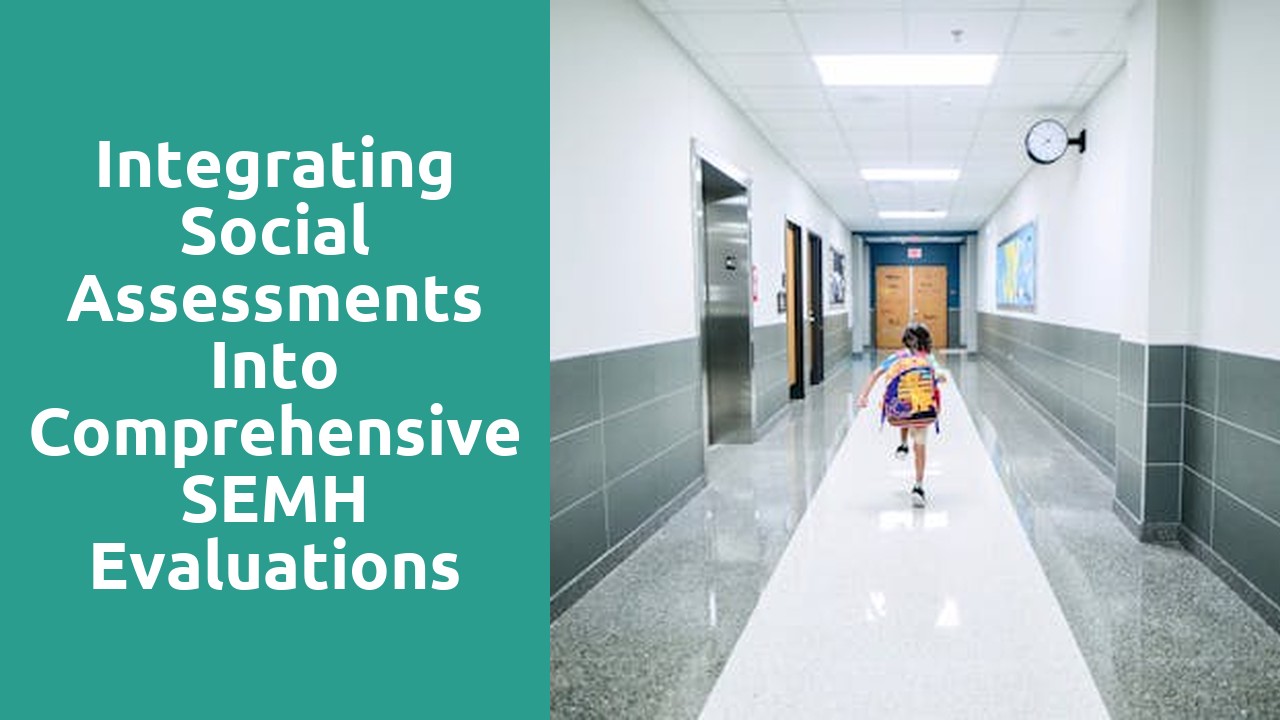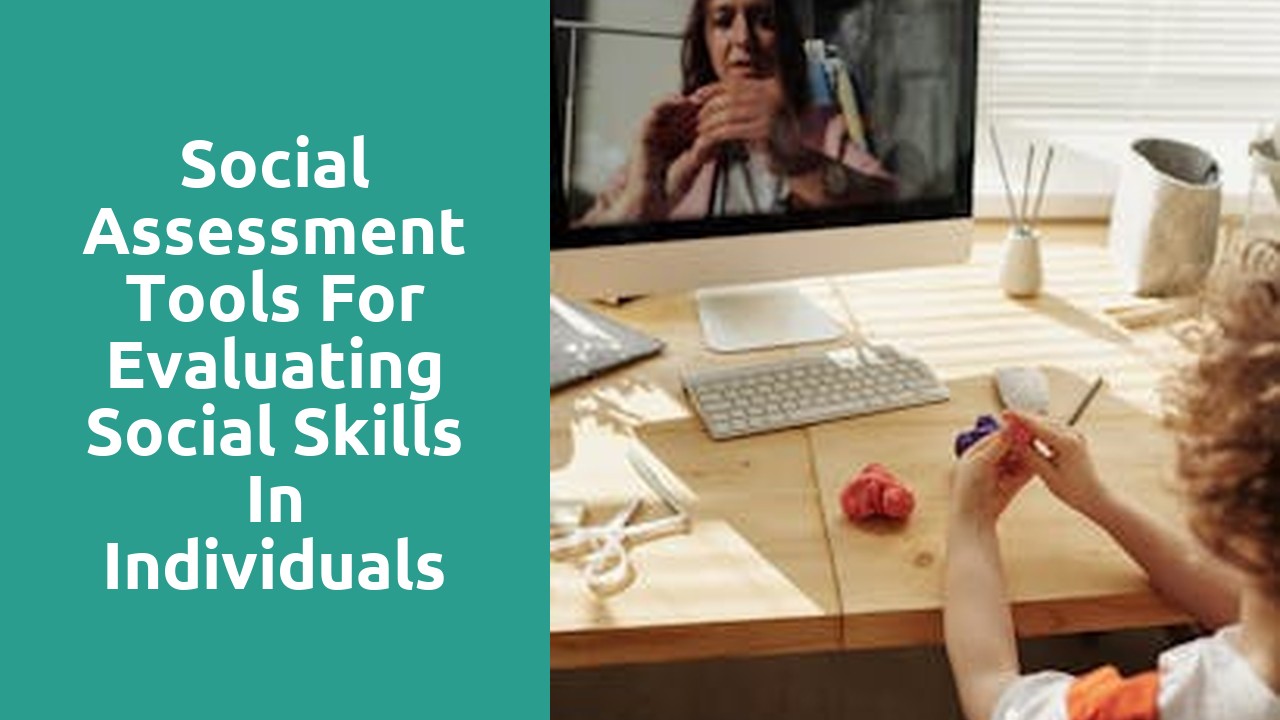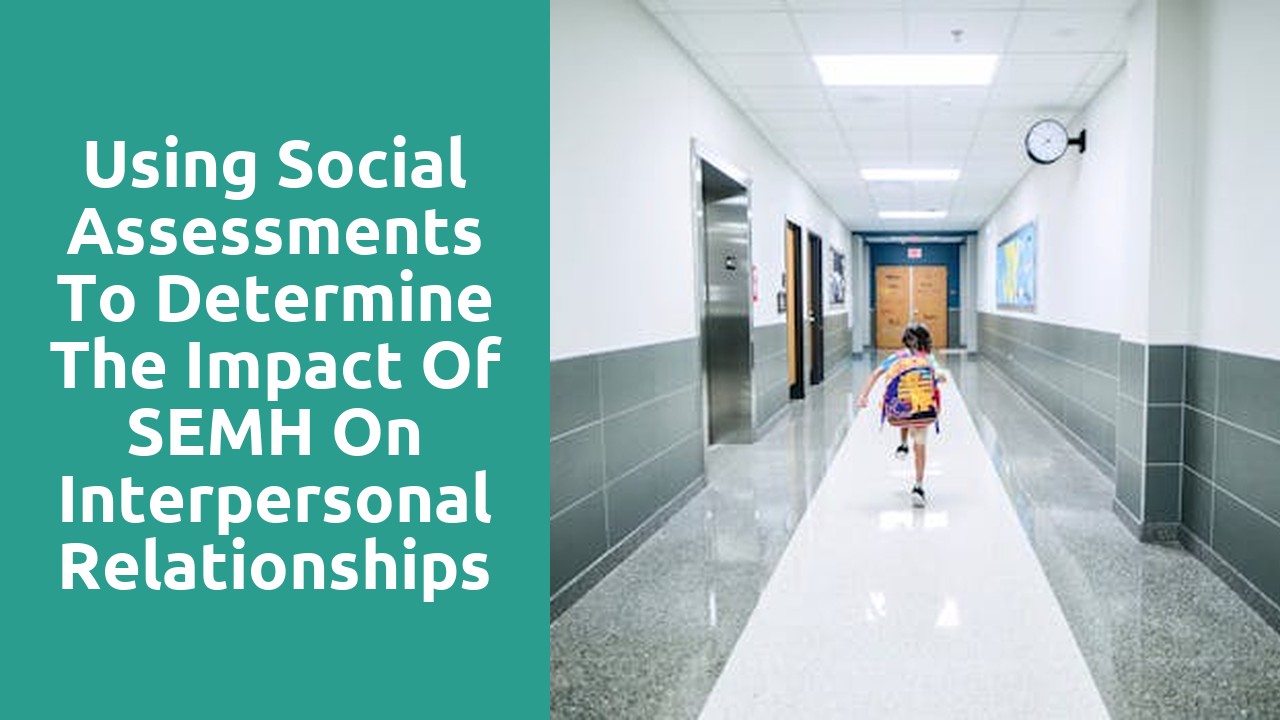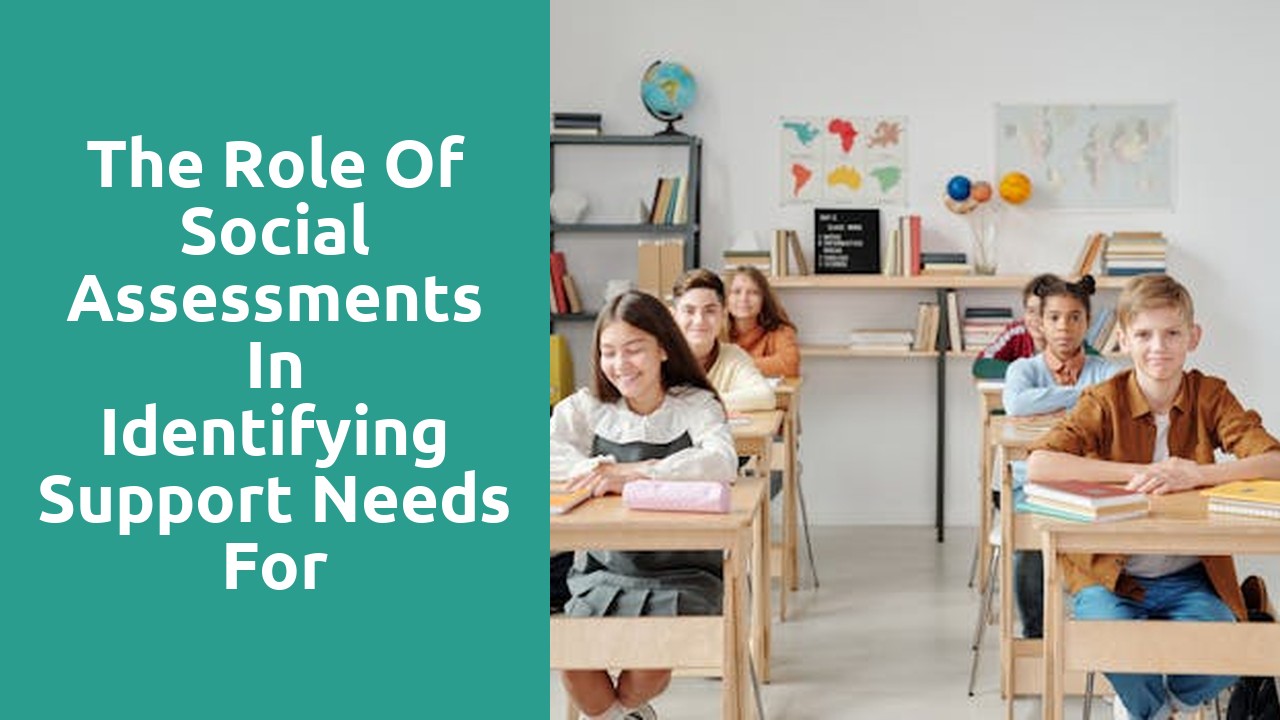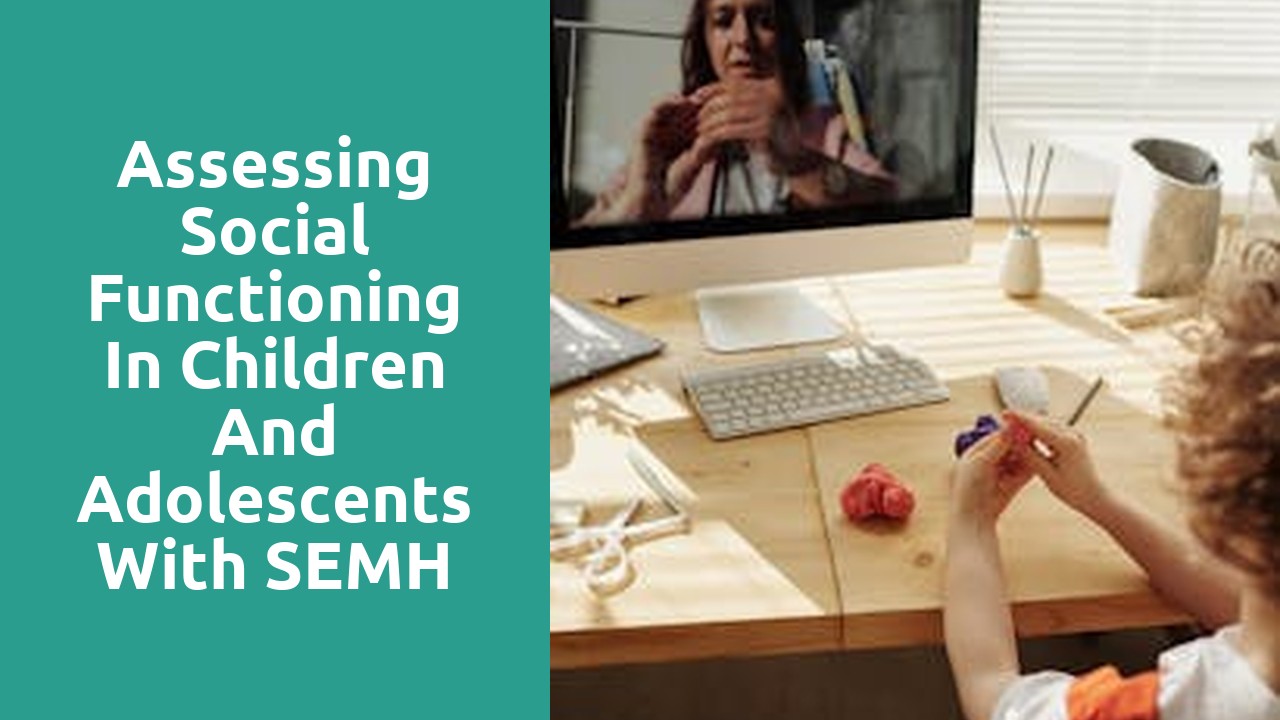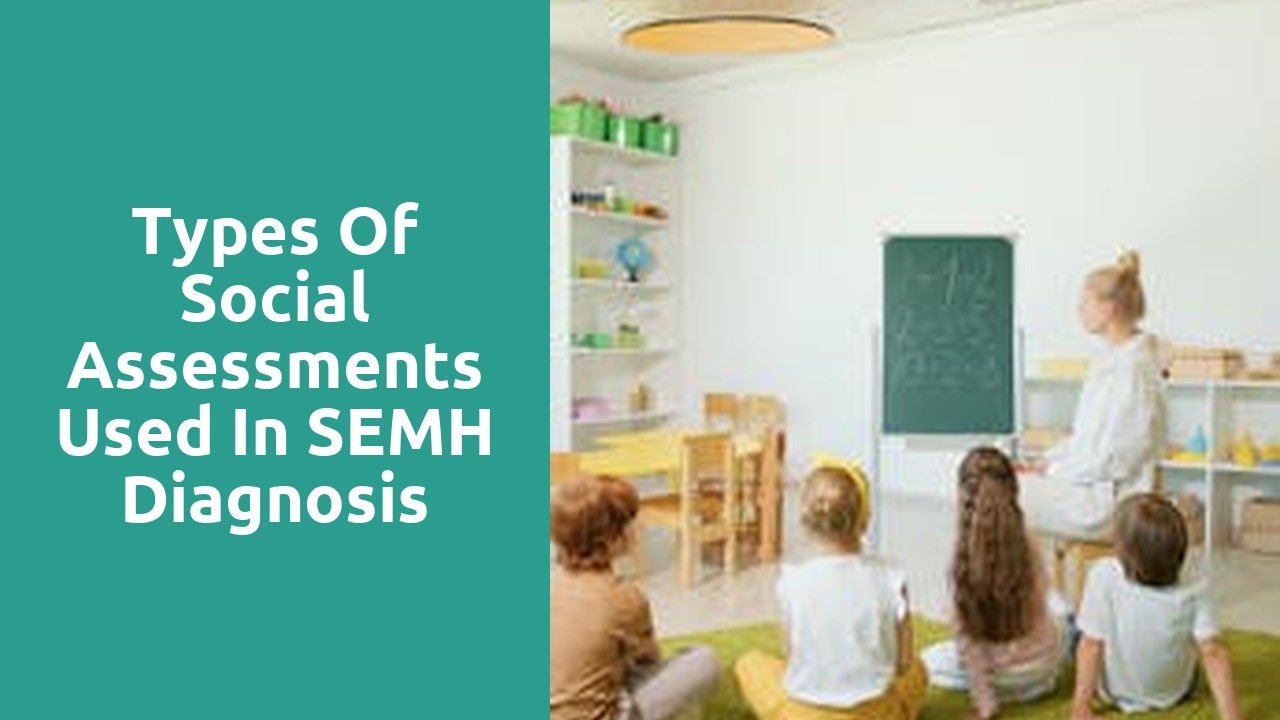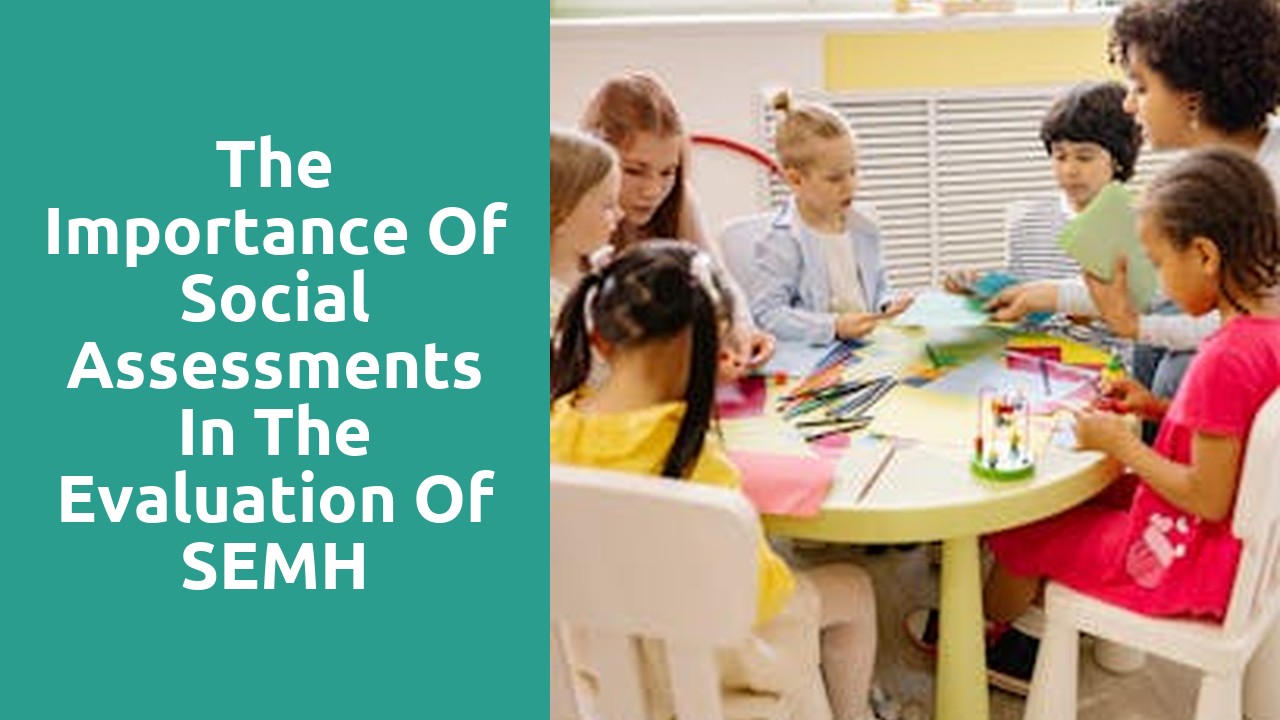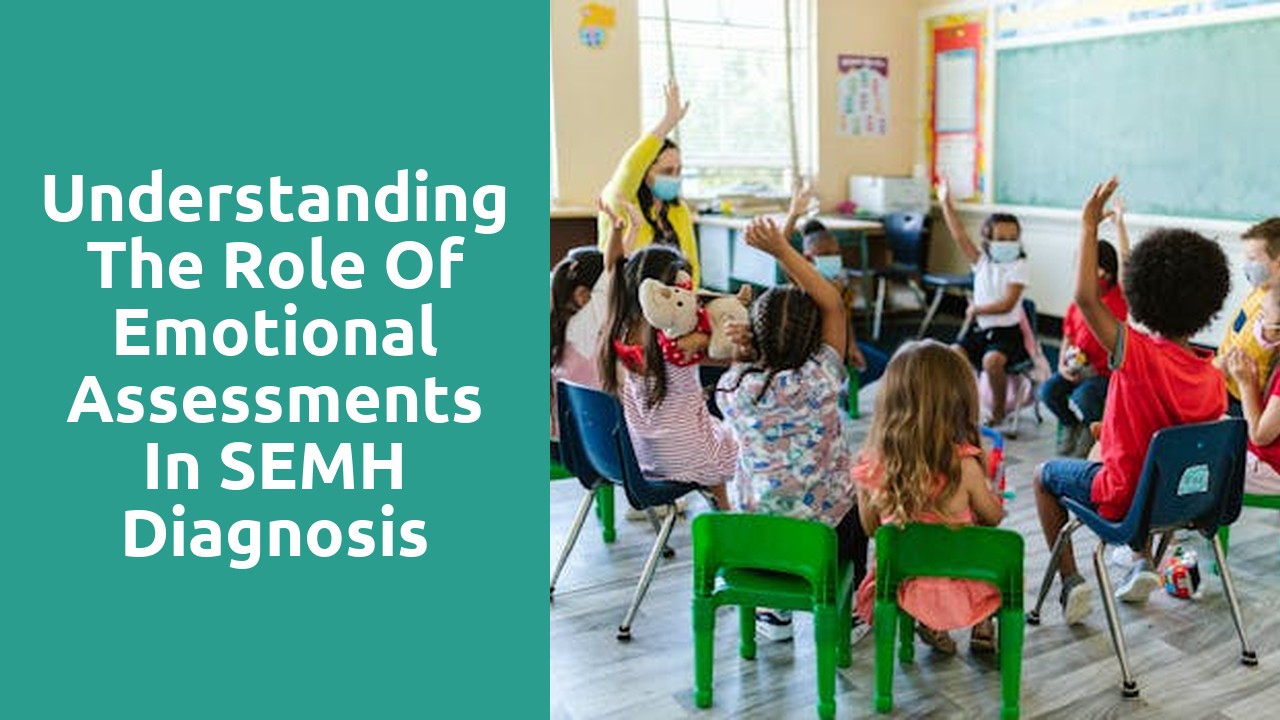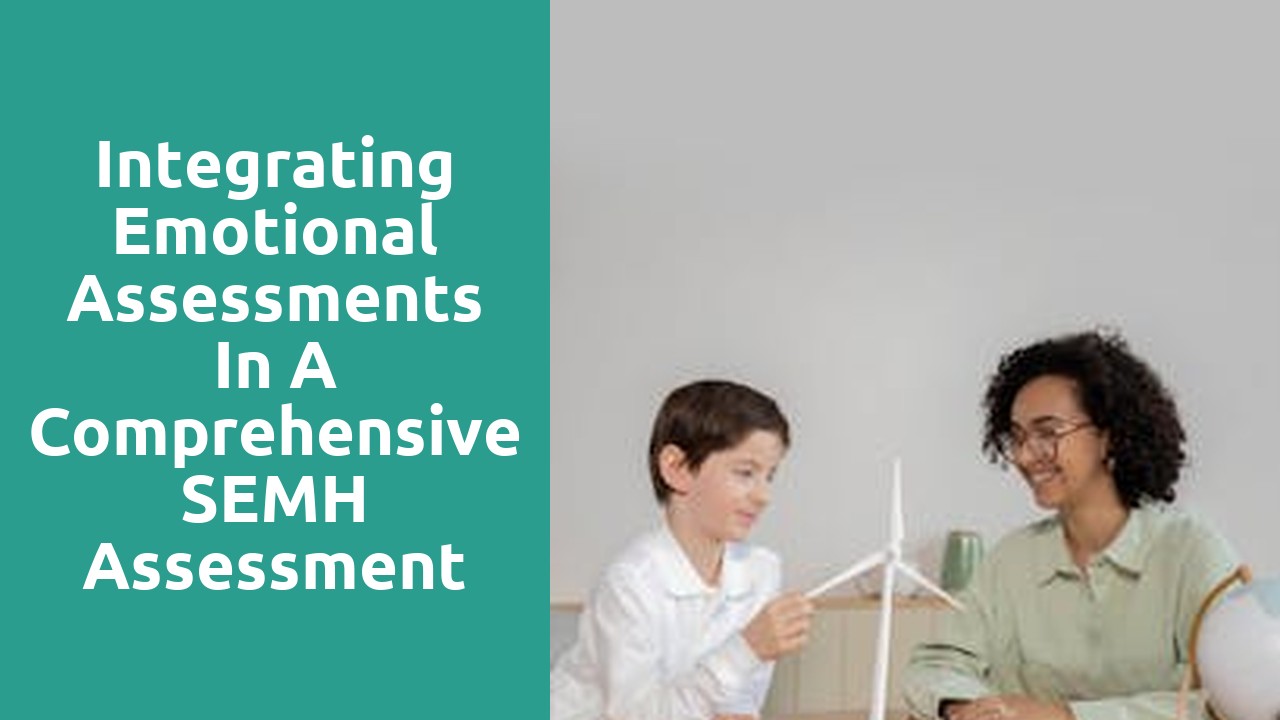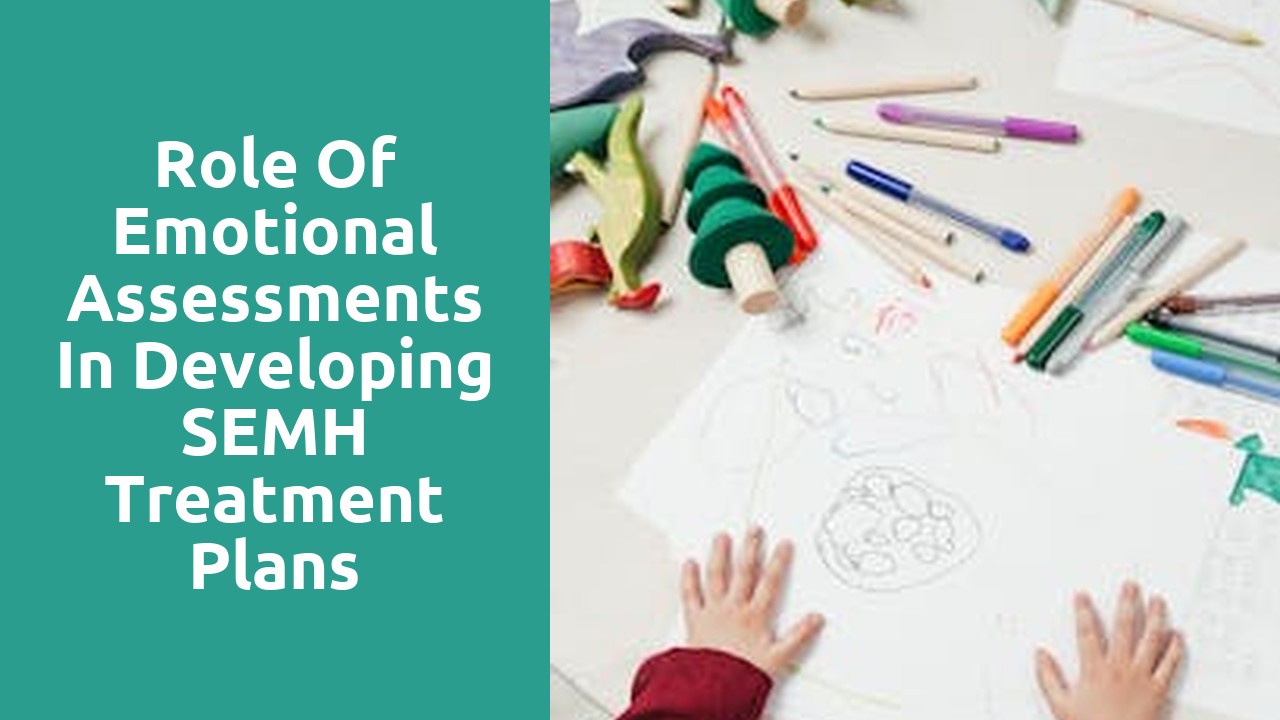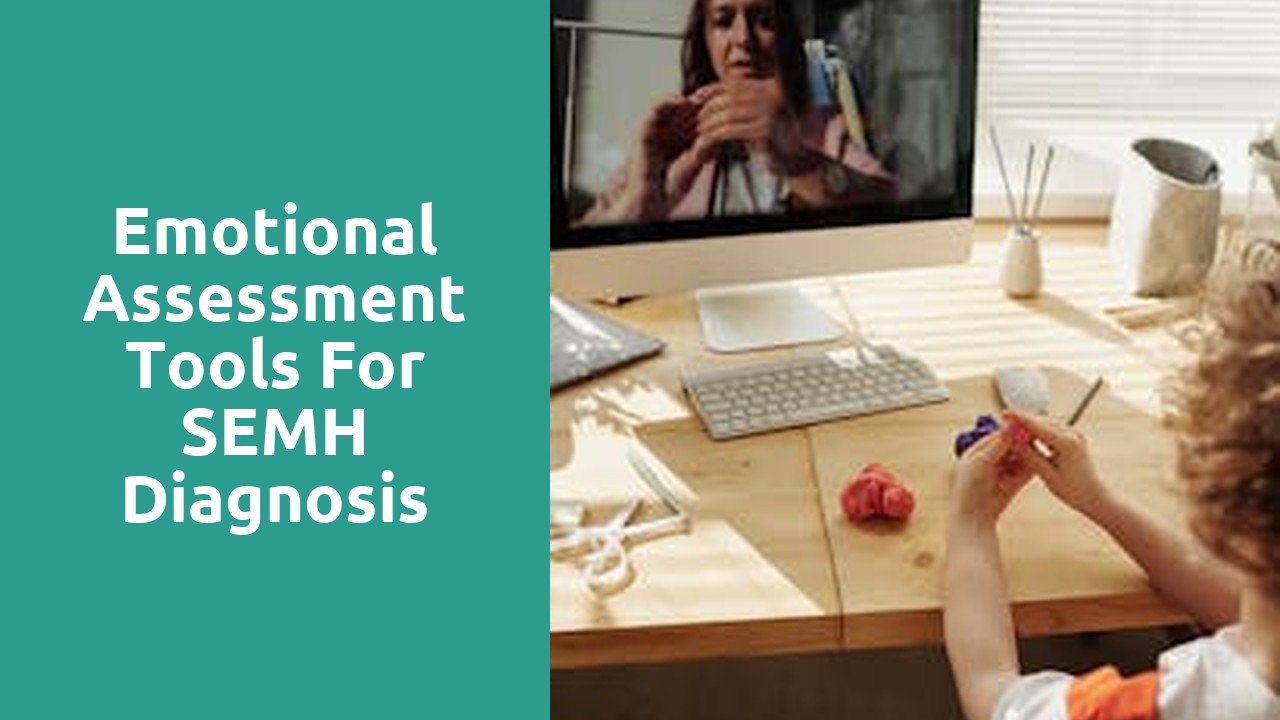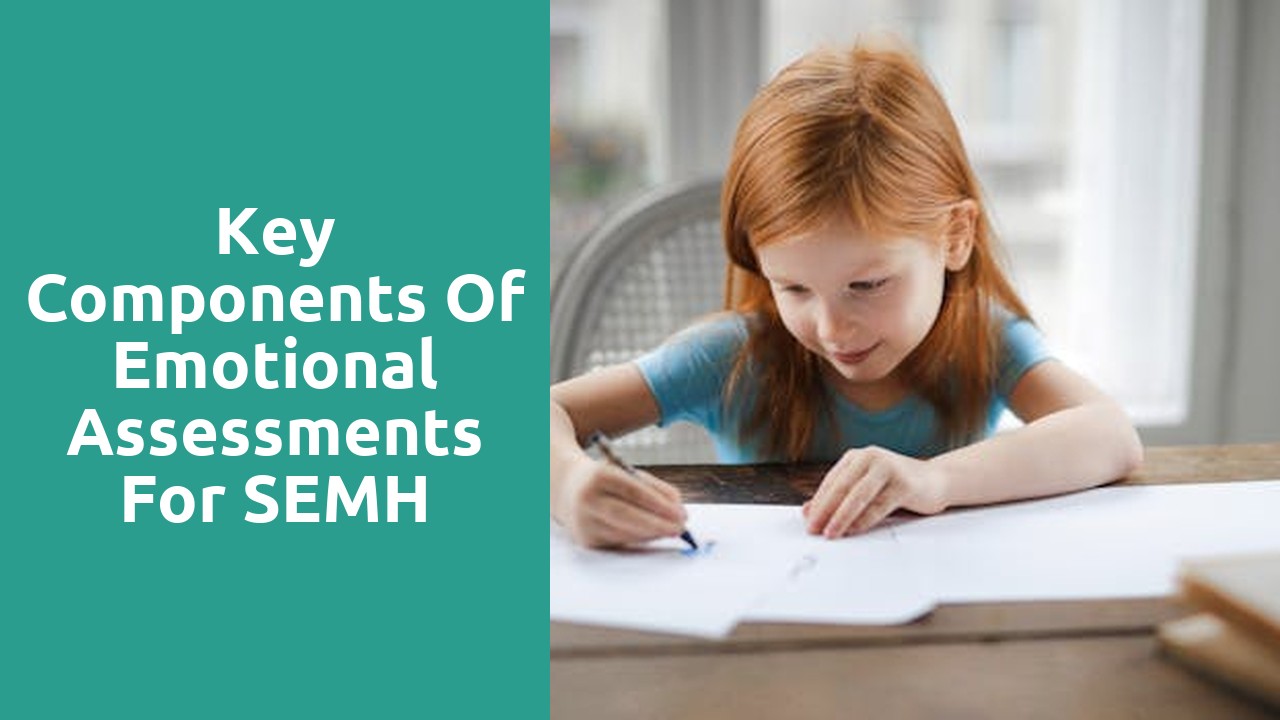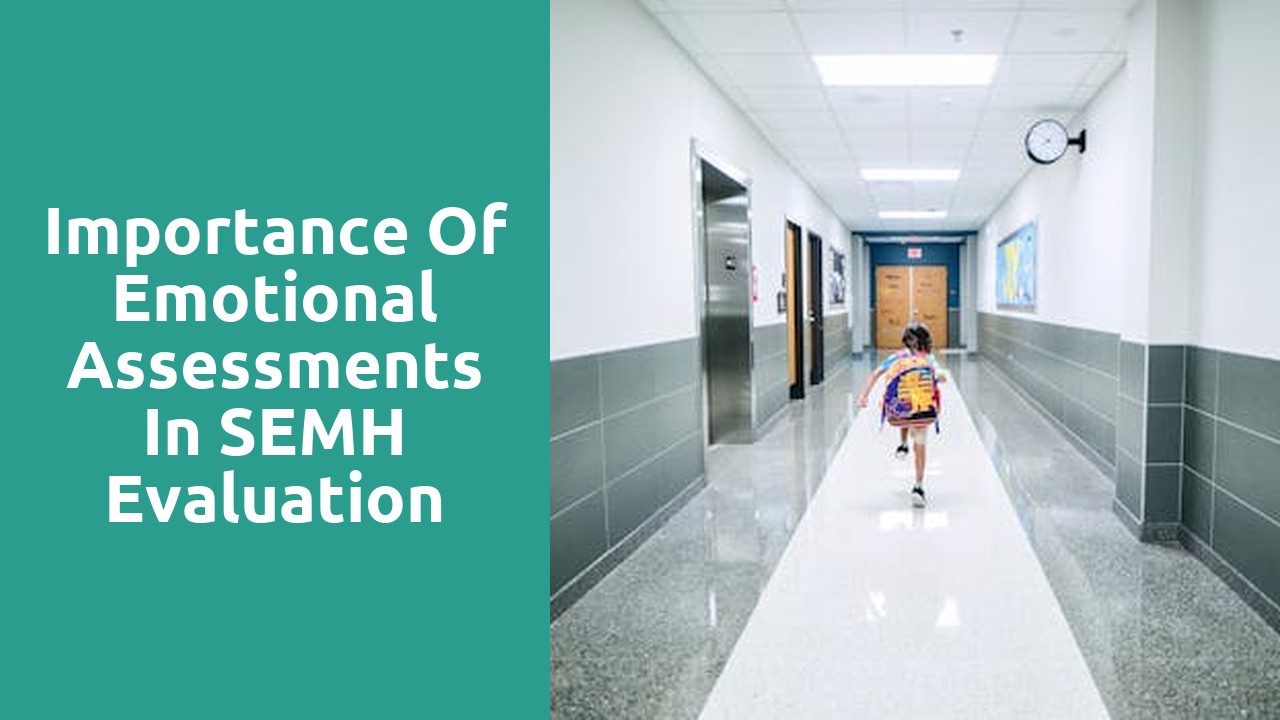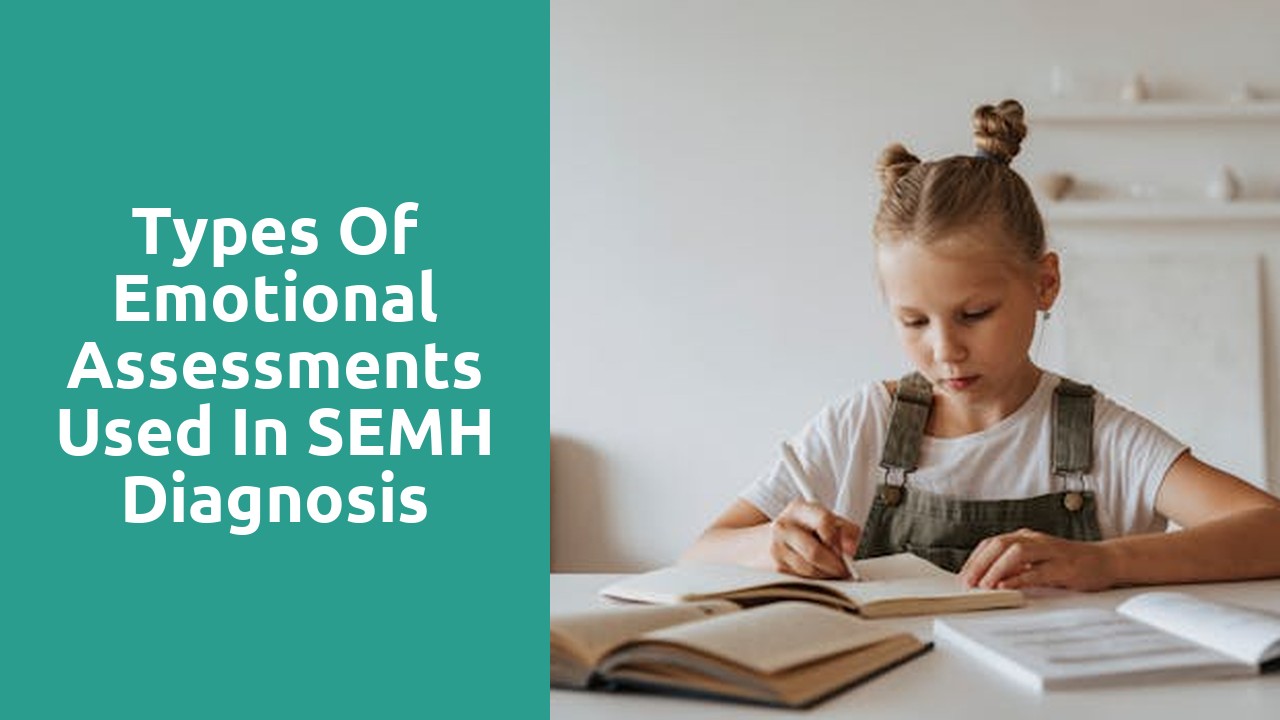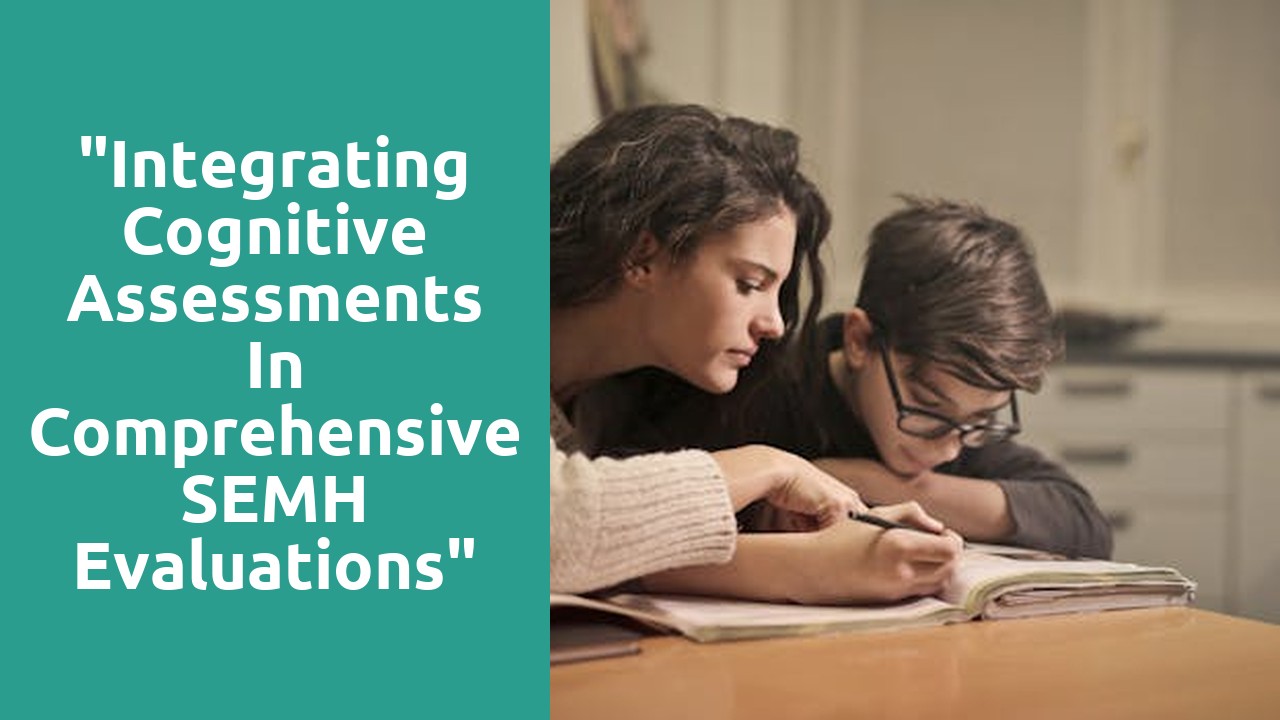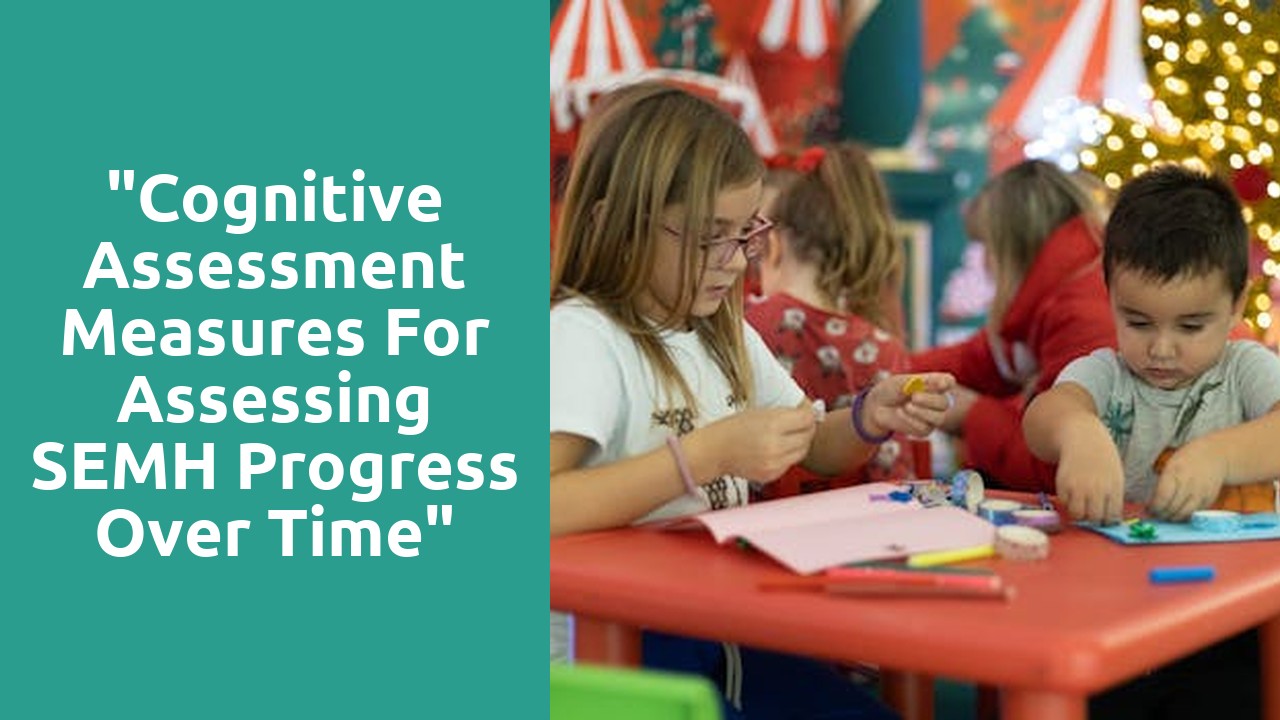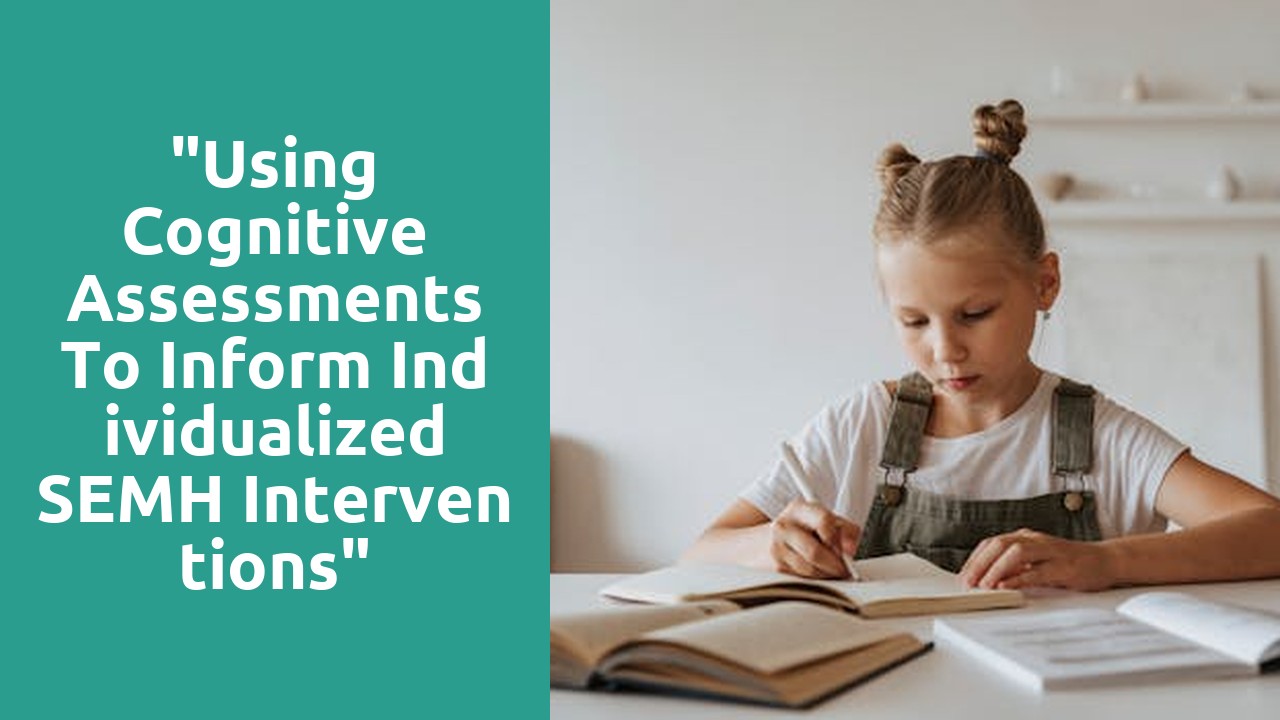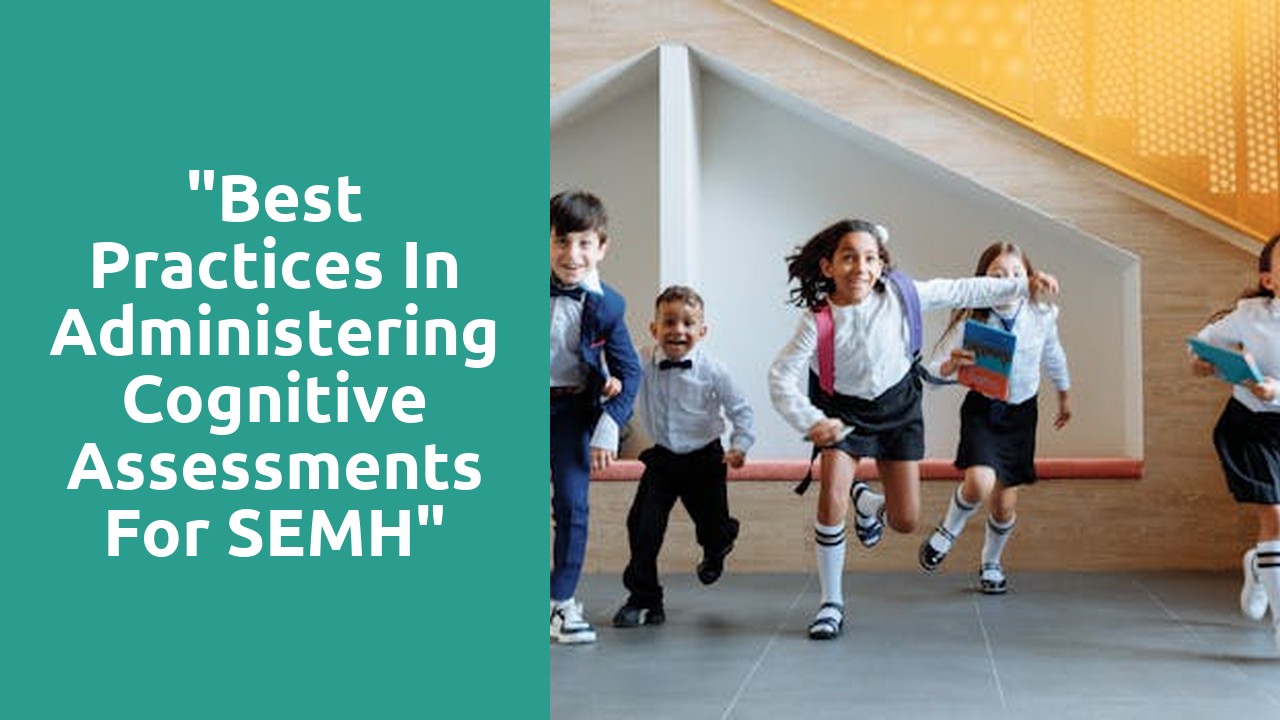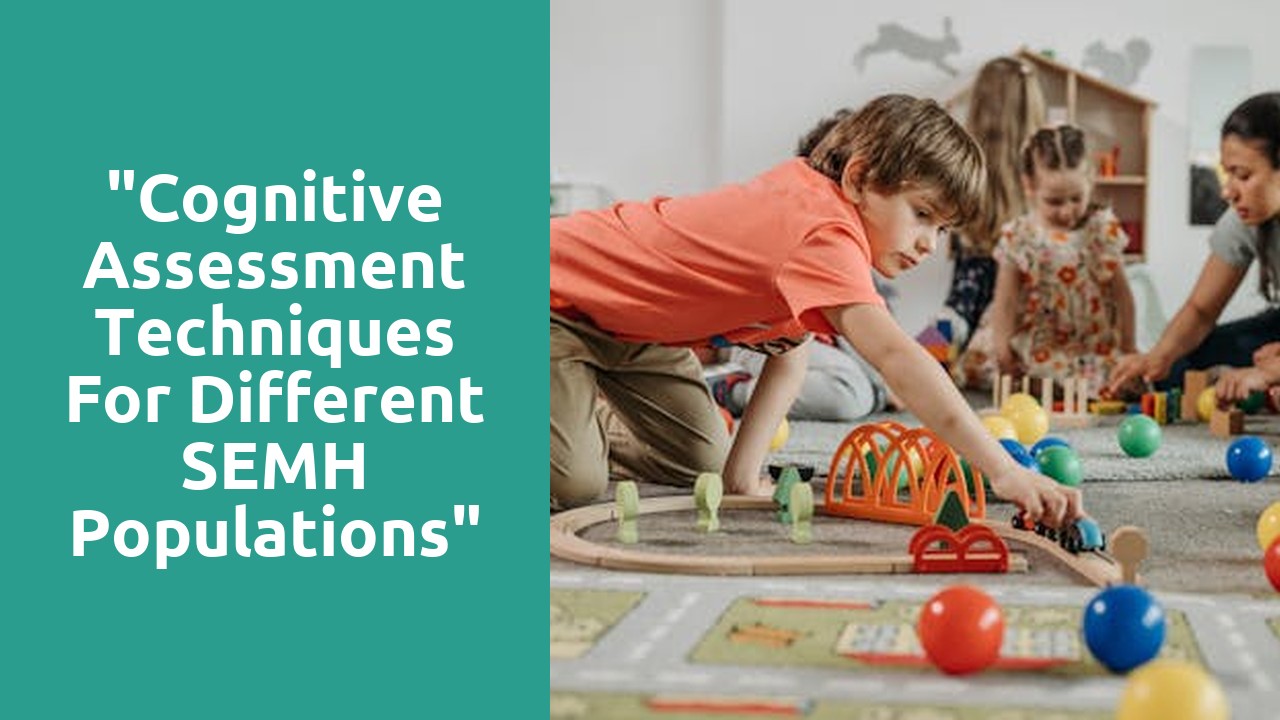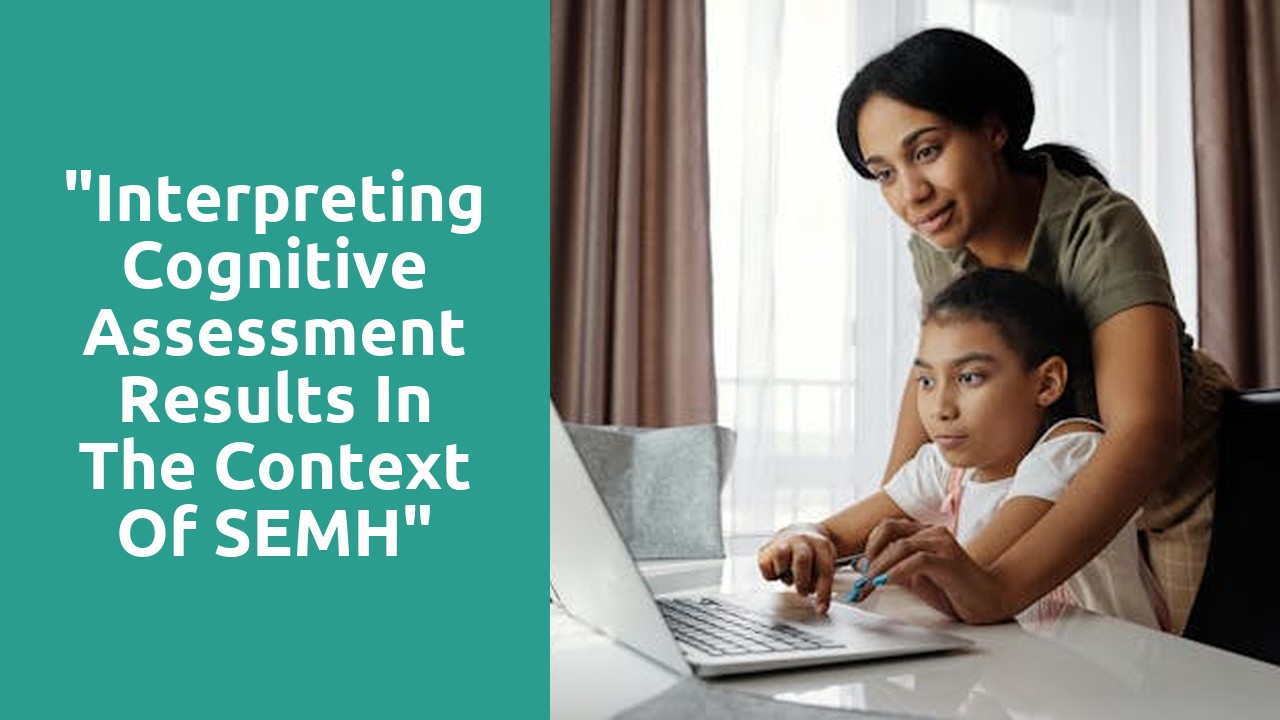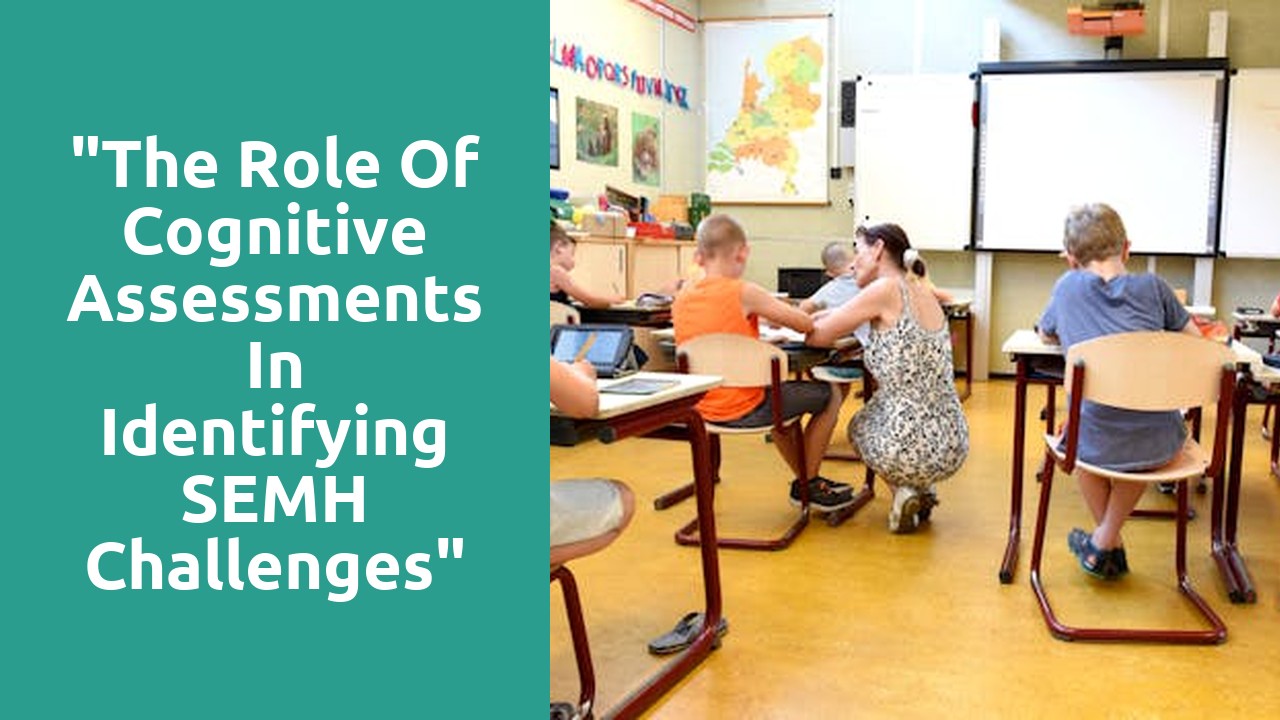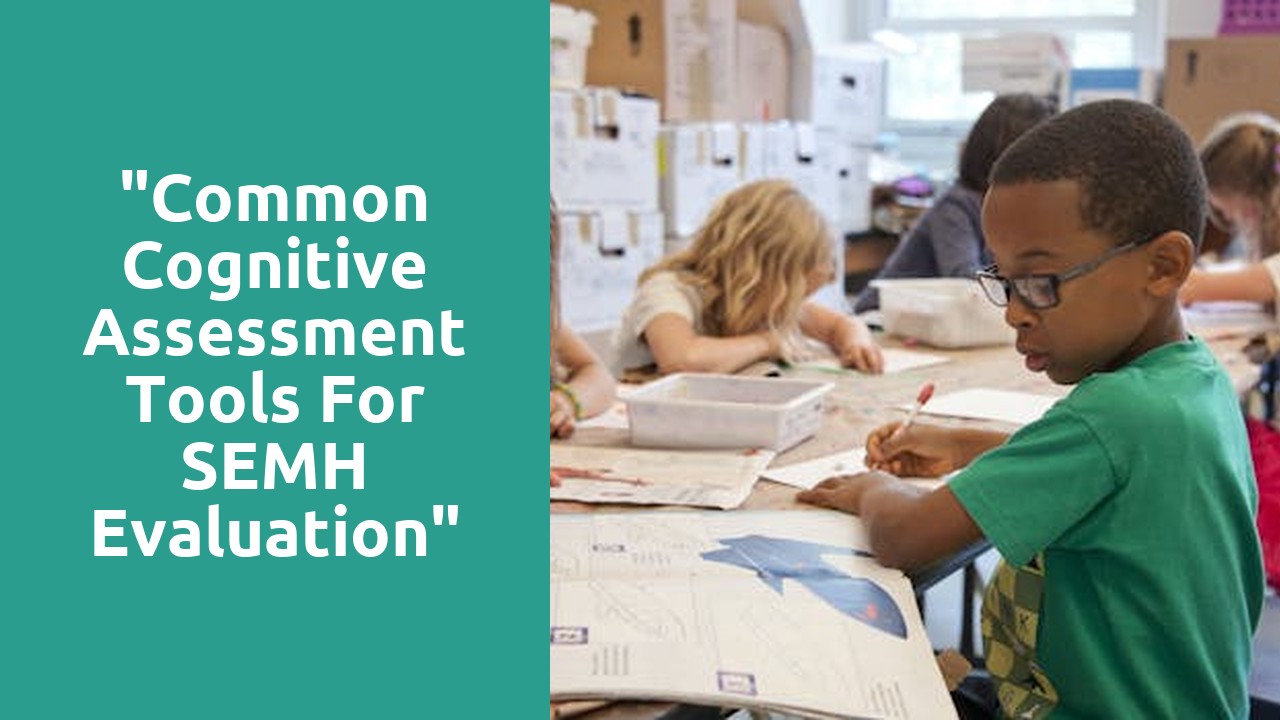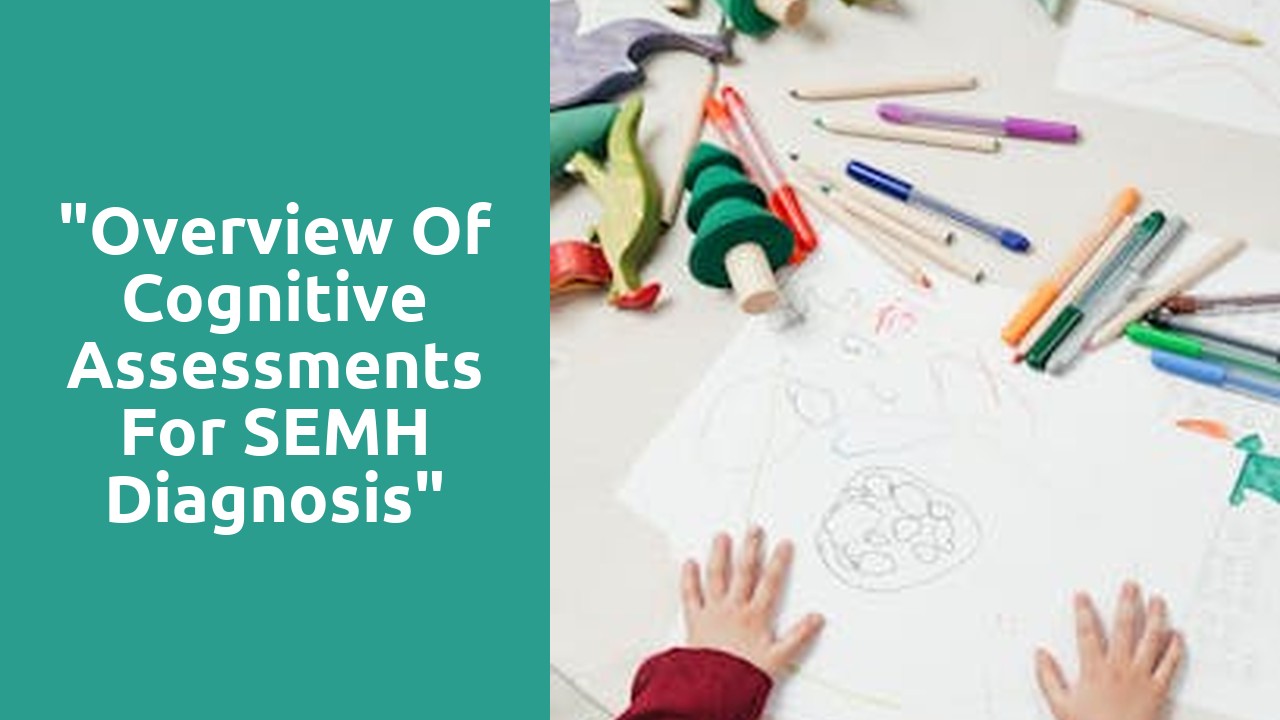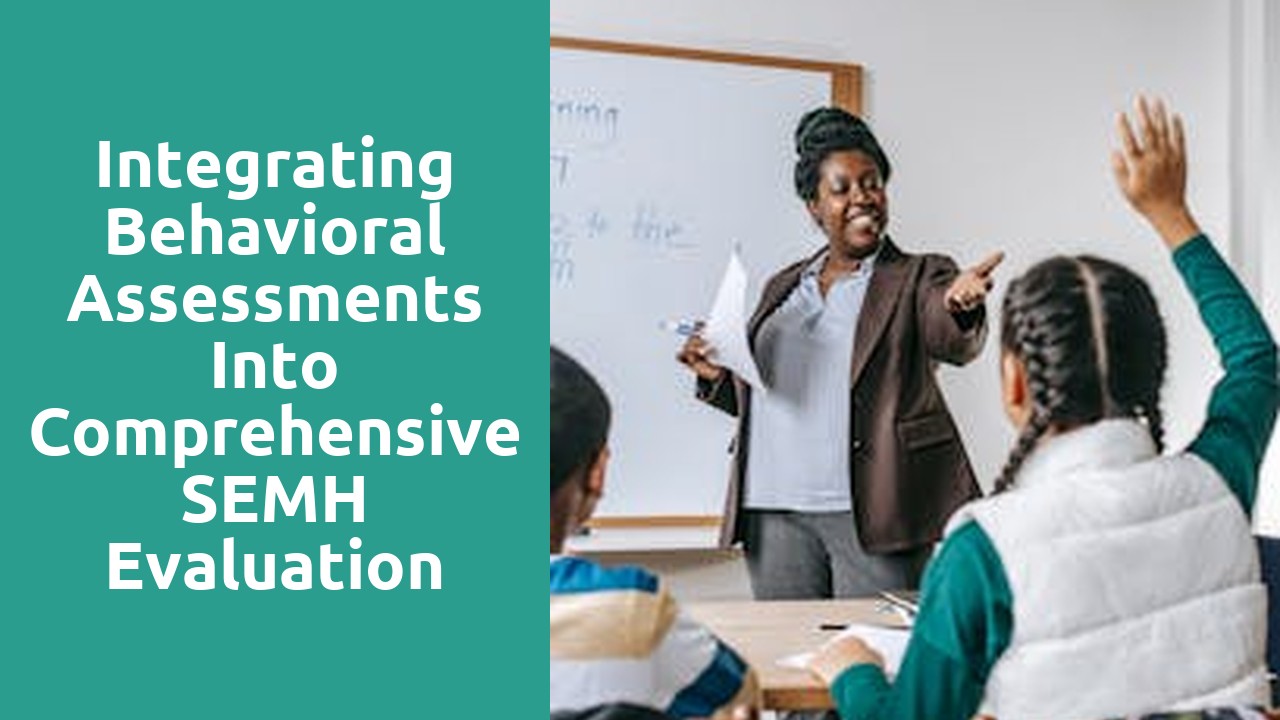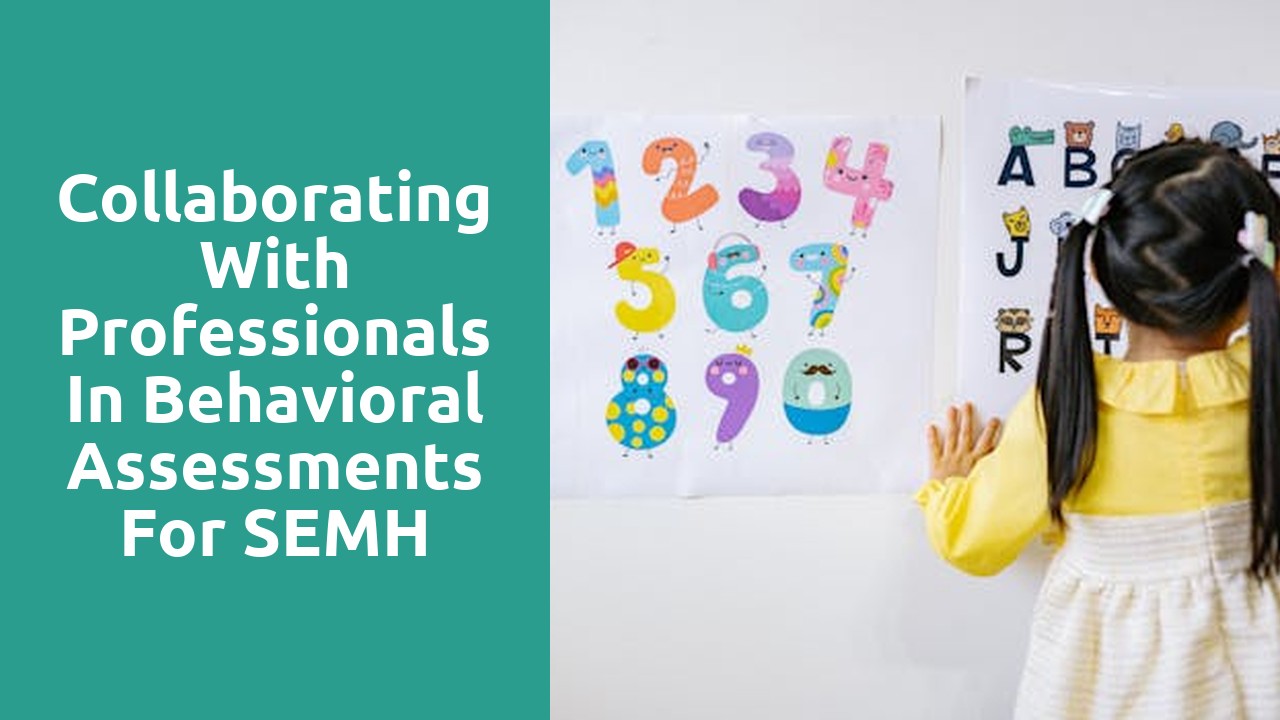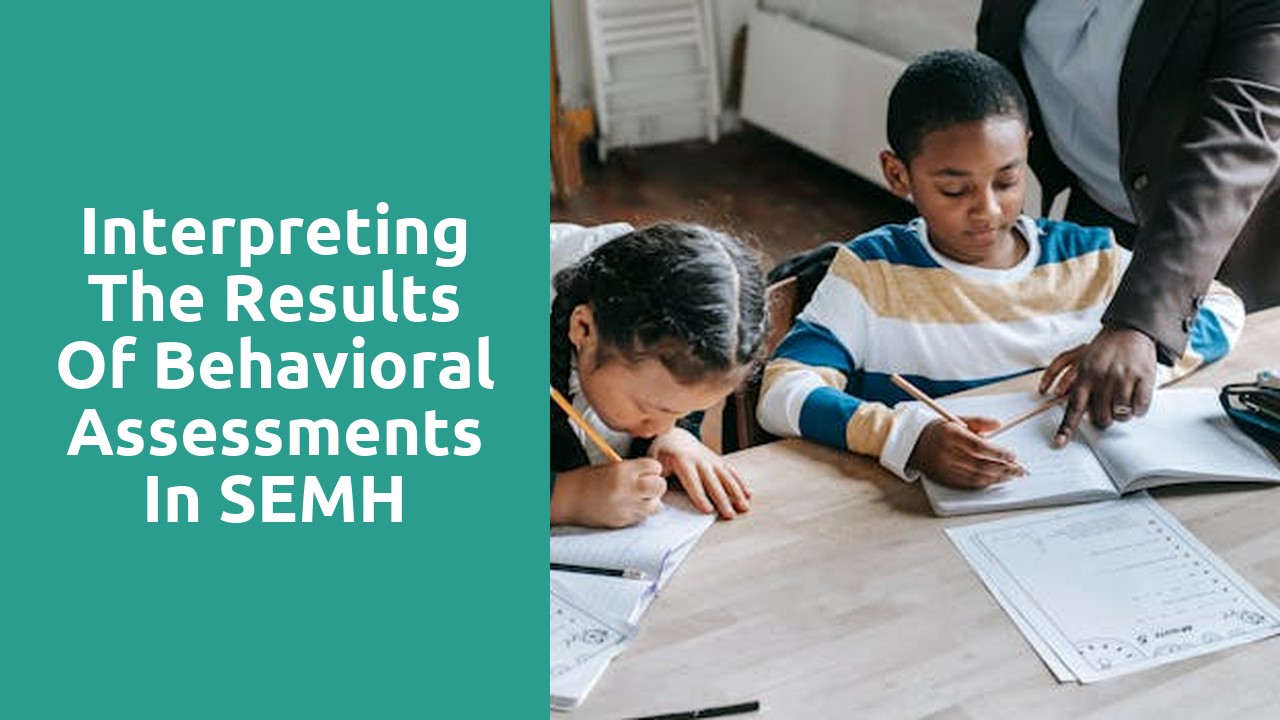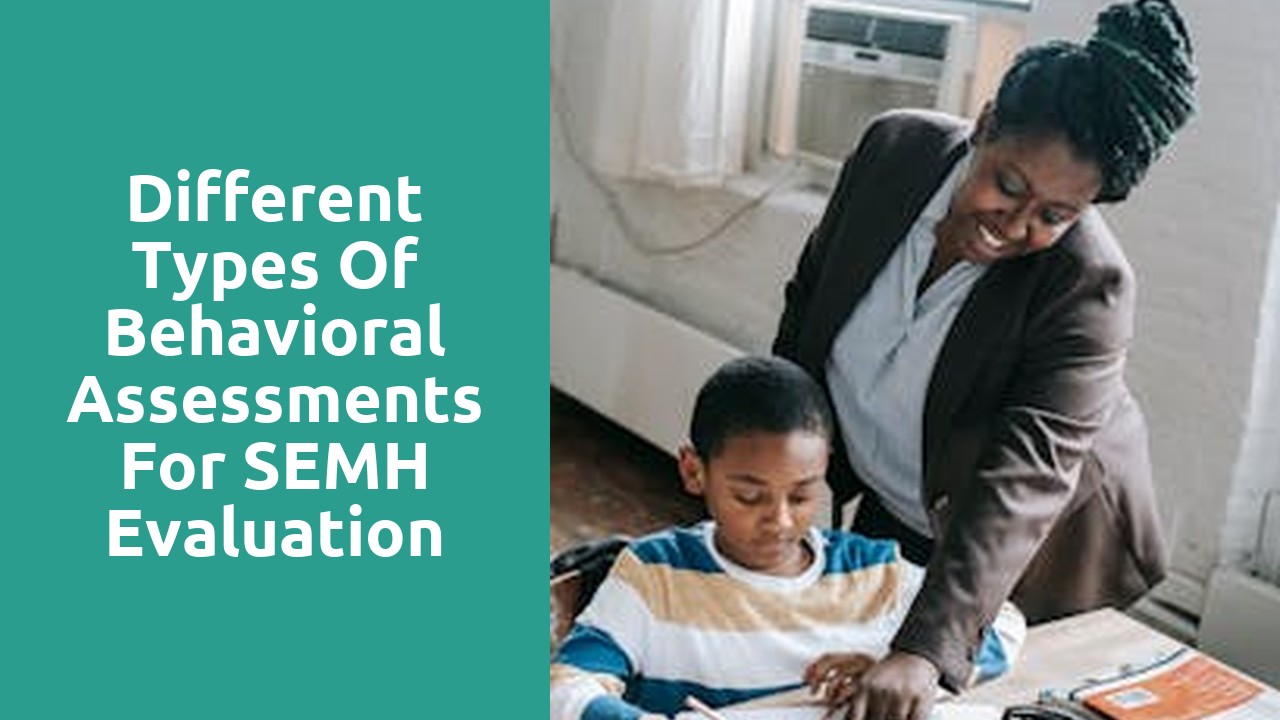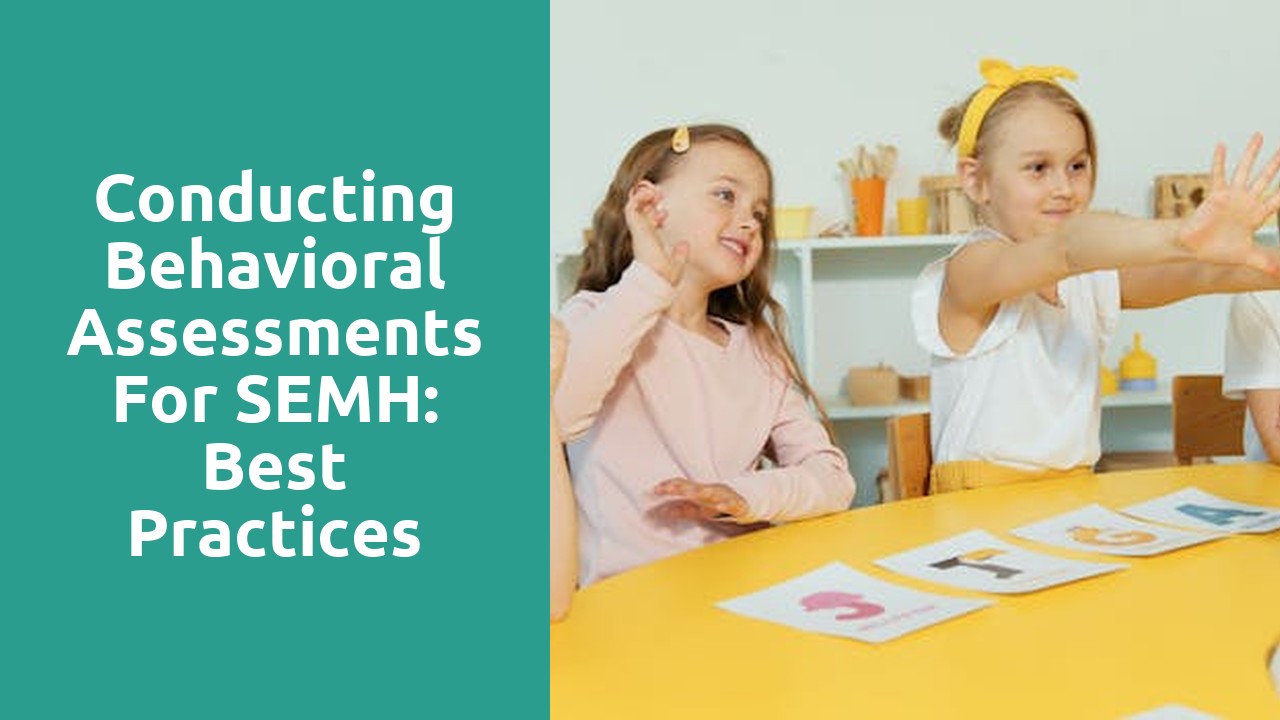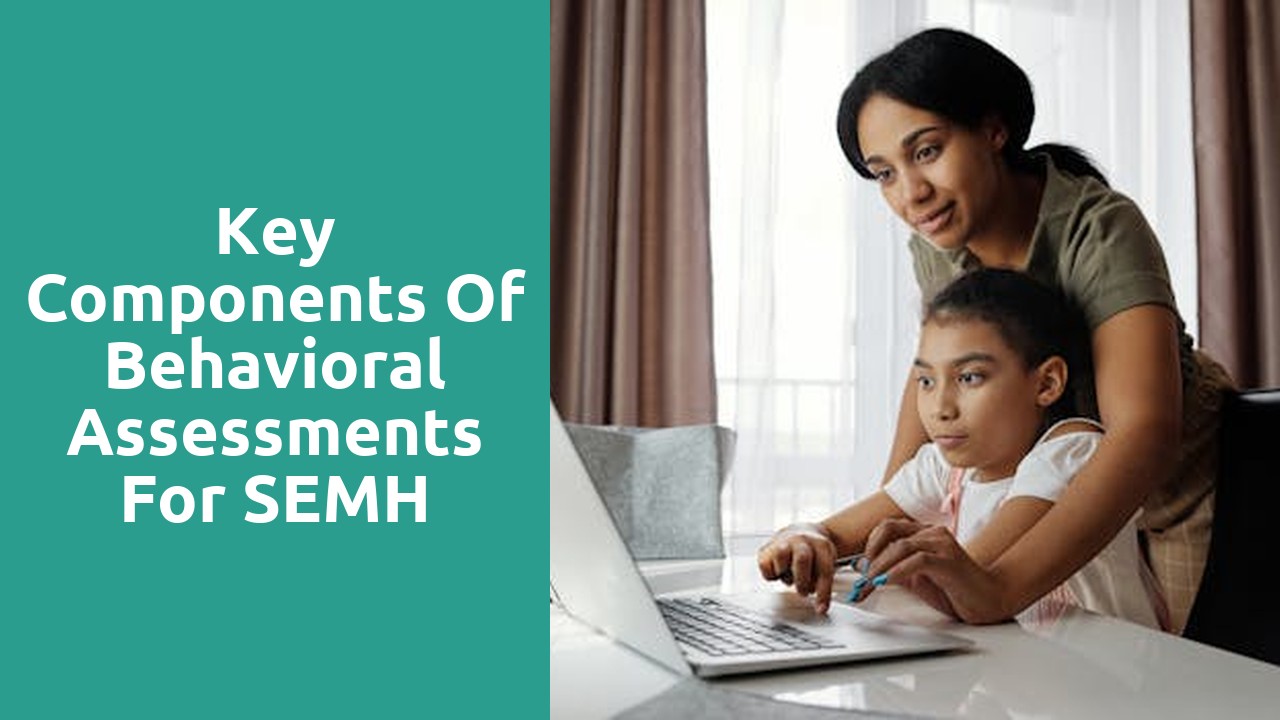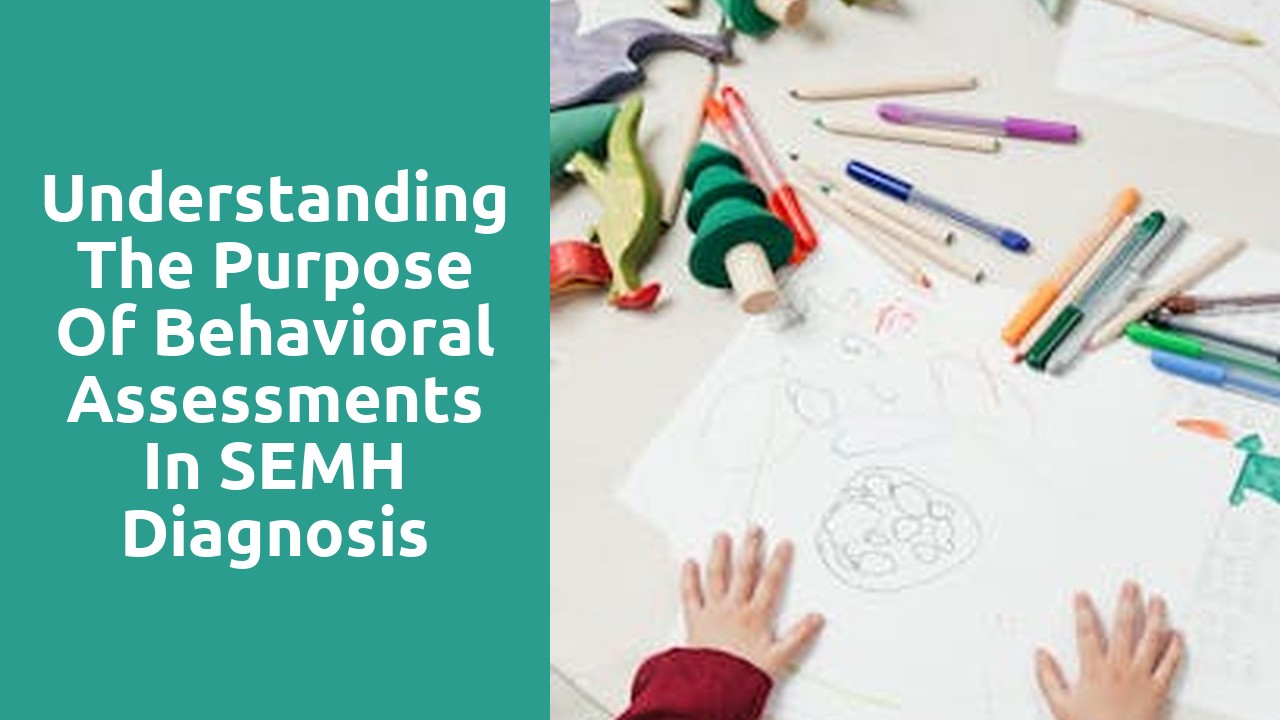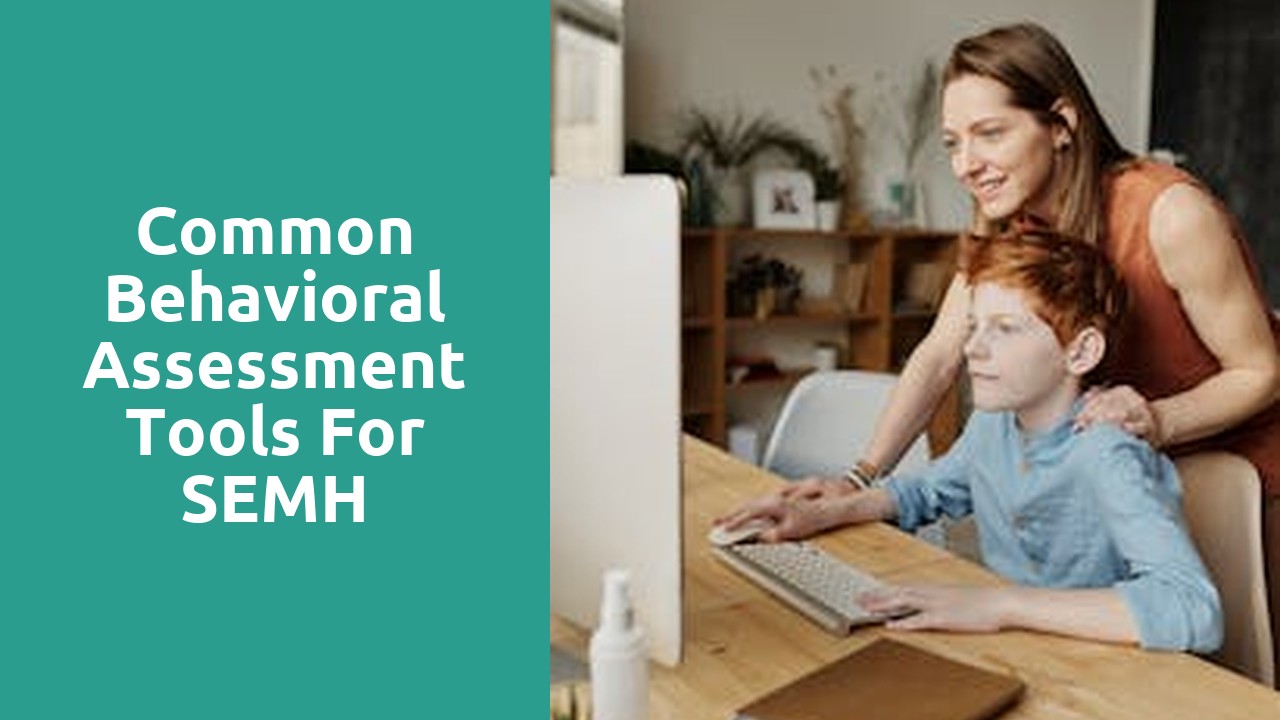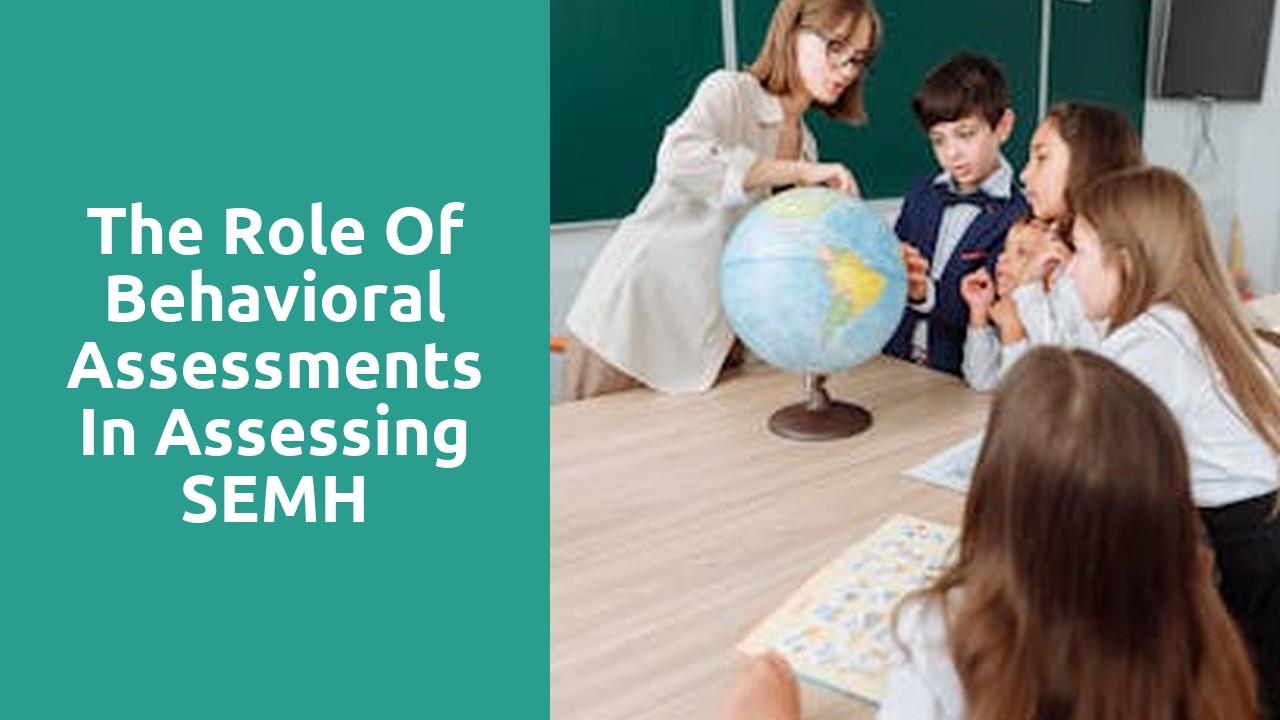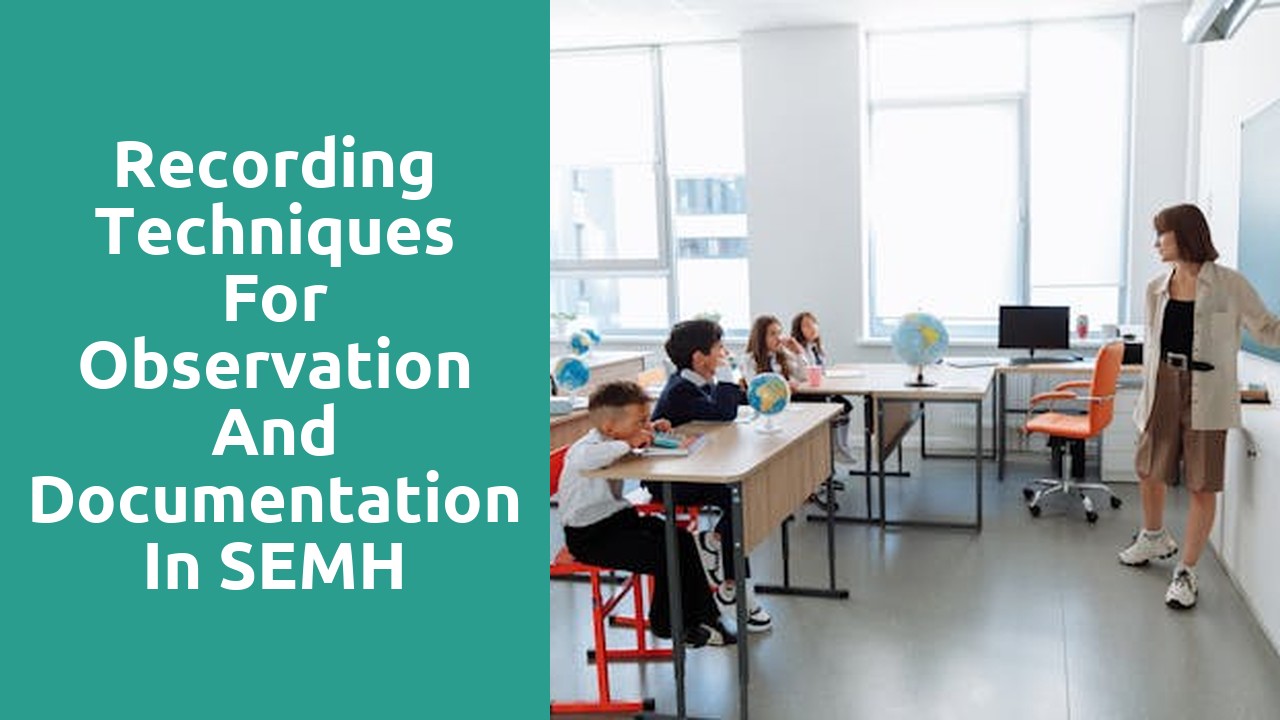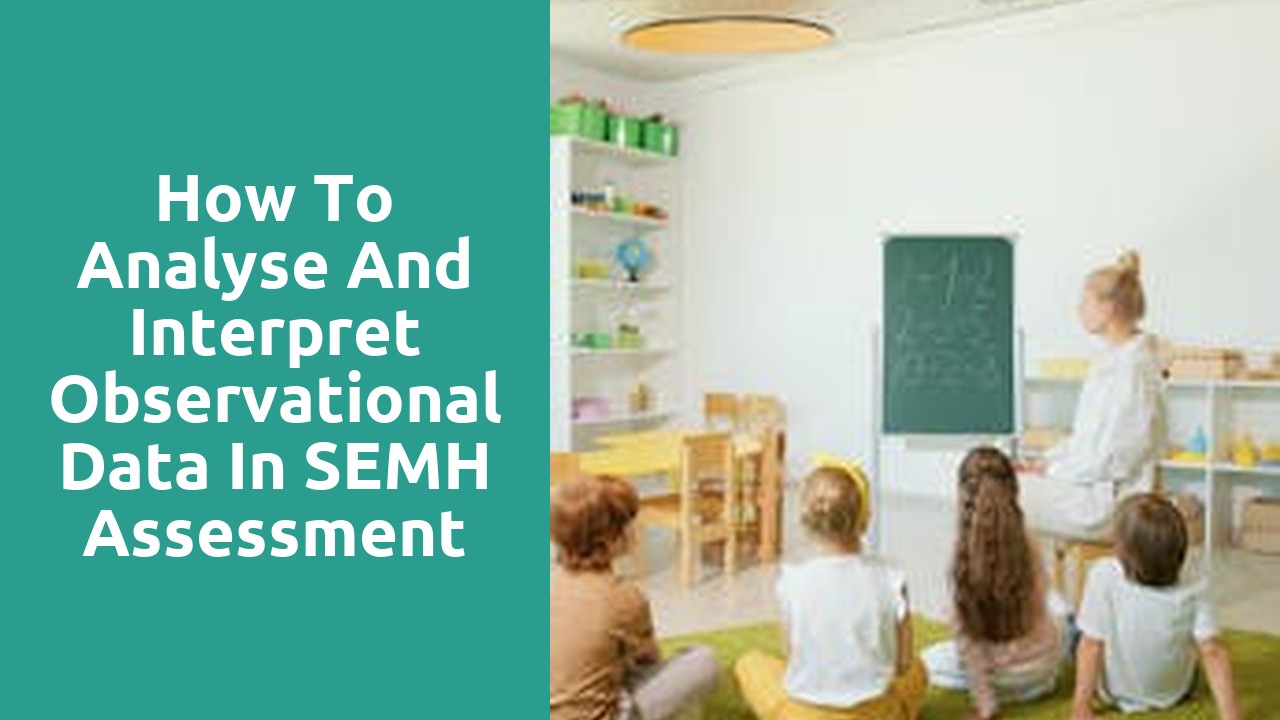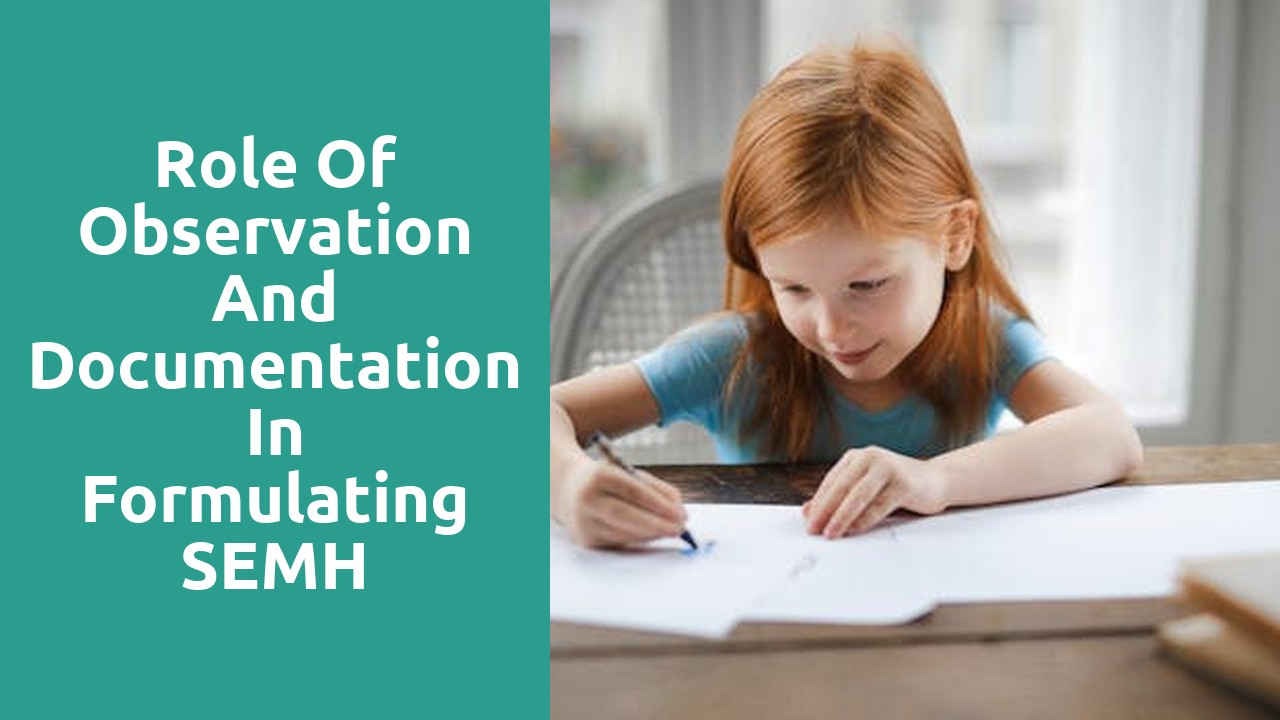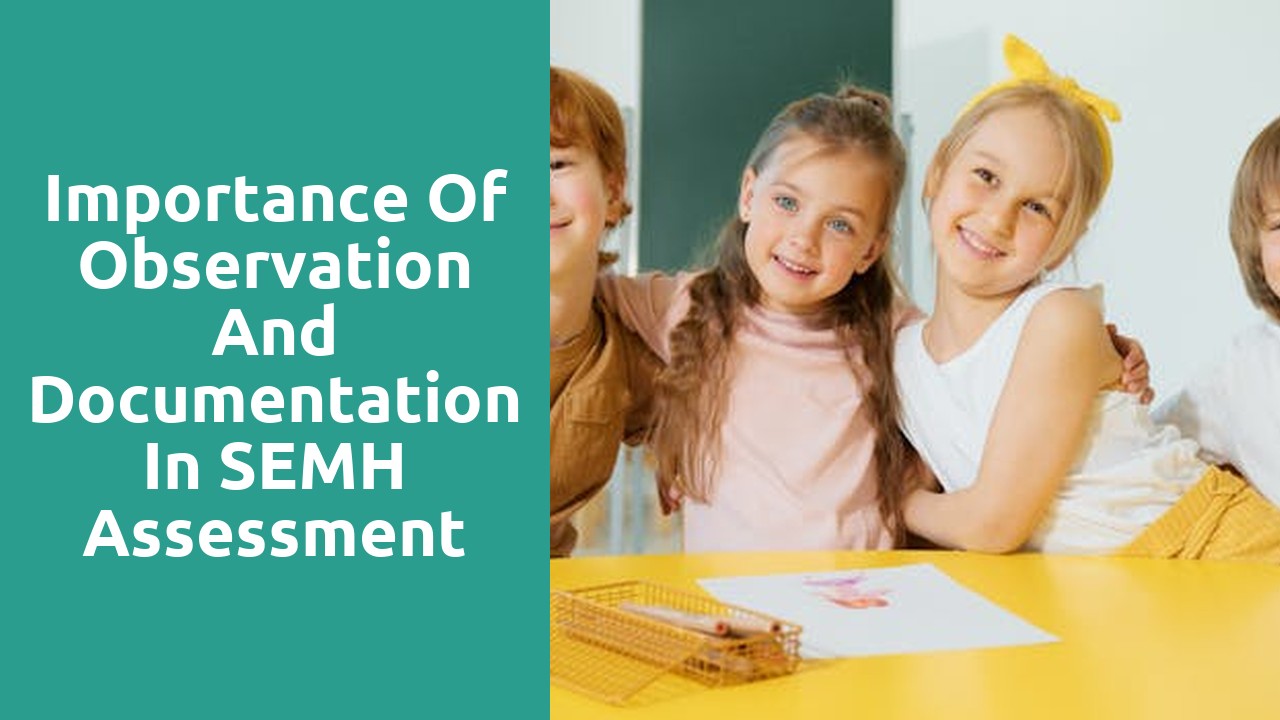SEMH Assessment: Understanding the Process for Special Educational Needs
Social, Emotional and Mental Health (SEMH) assessments are crucial in identifying the support needs of children and young people who experience difficulties in managing their emotions and behaviour. As an area of assessment within the educational context, SEMH aims to understand the underlying factors that impact a pupil's ability to engage successfully with learning. The process involves an evaluation of both the individual's social and emotional competencies as well as the external factors influencing their behaviour, such as family dynamics, school environment, and peer relationships.
Tailoring educational experiences to meet the SEMH needs of students is fundamental to promoting their academic achievement and personal development. By conducting thorough assessments, educators and support workers can develop intervention strategies that foster a supportive learning environment. This allows for the integration of social and emotional learning into the curriculum, which can significantly contribute to the overall wellbeing of pupils.
The significance of SEMH assessments has been underscored by recent studies, which suggest a growing prevalence of social and emotional difficulties among school-aged children. This trend points to the need for an increased awareness of SEMH issues and highlights the importance of early identification and intervention. As such, SEMH assessments serve not only as a tool for support planning but also as a preventative measure to address potential challenges before they escalate, ensuring that every child has the opportunity to succeed both academically and personally.
Boxall Profile Online is an innovative tool that enhances the effectiveness of SEMH assessments. It is designed to provide educators and mental health professionals with a comprehensive framework for understanding the complexities of a child's emotional and social development. By utilizing the Boxall Profile, professionals can gain insights into specific areas of need, enabling them to tailor interventions more precisely. This online resource offers a detailed analysis of various aspects of emotional and social functioning, helping to identify patterns and triggers of certain behaviours. The use of Boxall Profile Online in SEMH assessments represents a significant step forward in addressing the unique challenges faced by children and young people with SEMH needs, promoting a more inclusive and understanding approach within educational and therapeutic settings.
Understanding SEMH Needs
Social, Emotional and Mental Health (SEMH) needs can significantly affect a child's ability to learn and thrive in educational settings. It is crucial for educators to identify these needs and understand their impact on learning to provide the necessary support.
Identifying SEMH Needs
Identifying SEMH needs in children and young persons requires a comprehensive assessment process. This assessment should include a variety of methods such as:
- Observations: Teachers and support staff can monitor changes in behaviour and engagement during different activities and social interactions.
- Structured Assessments: These may involve questionnaires and screening tools designed to evaluate emotional wellbeing, behaviour, and language skills.
- Multi-disciplinary Input: Insights from educational psychologists, speech and language therapists, and mental health professionals can contribute to a clearer understanding of the SEMH needs.
A table to guide educators on what to look out for:
| Behaviour Indicator | Possible SEMH Need |
|---|---|
| Withdrawal from peers | Emotional wellbeing issues |
| Disruptive conduct | Behavioural challenges |
| Difficulty in following instructions | Language comprehension issues |
| Low participation in class | Confidence or emotional concerns |
Impacts of SEMH on Learning
SEMH needs can have a profound impact on a child’s educational experience. Key impacts include:
- Learning Difficulties: Children with SEMH needs may struggle with concentrating, staying motivated, and retaining information.
- Social Challenges: They could have difficulties in forming and maintaining relationships, which are pivotal for collaborative learning.
- Behavioural Concerns: Behavioural issues may lead to exclusions, affecting their educational continuity and overall development.
A bulleted list of how SEMH needs can affect academic performance:
- Reduced ability to focus on tasks
- Lower levels of school attendance
- Difficulty in managing stress and frustration
- Decreased academic achievement
Understanding SEMH needs within an educational context is essential to foster an inclusive environment that supports every child’s growth. Recognising and addressing these needs early can lead to improved outcomes, not only in educational achievements but also in overall life satisfaction and success.
Strategies for SEMH Support
Effective Social, Emotional and Mental Health (SEMH) strategies ensure a supportive environment that caters to the diverse needs of pupils. Essential to these strategies is the collaboration between school staff, professionals, and carers.
Whole School Strategies
Preventative Measures: A whole school approach to SEMH involves establishing a positive school ethos that promotes inclusivity and emotional wellbeing. This can be done by:
- Embedding Emotional Literacy: Curriculum infused with lessons to build pupils' emotional vocabulary and understanding.
- Staff Training: Regular professional development to equip educators with the necessary skills to support emotional regulation and resilience in students.
- Promoting Staff Wellbeing: Initiatives aimed at maintaining a healthy work-life balance for educators are critical in fostering a supportive atmosphere.
- Restorative Practices: Implementing a restorative approach to address conflict and build a sense of community and responsibility among pupils.
Targeted Interventions
Specific Support Plans: For pupils requiring additional support, targeted interventions should be utilised, tailored to individual needs. Key interventions include:
- Individualised Plans: Development of bespoke plans focusing on specific emotional and behavioural goals.
- Small Group Work: Sessions targeting emotional regulation and social skills, often led by a trained professional.
These interventions are carefully monitored and adjusted as necessary to ensure they are effective and meet the changing needs of each pupil.
Role of Professionals and Carers
Collaborative Engagement: The role of professionals and carers is integral to the success of SEMH support. Working in partnership, they contribute the following:
- Expertise of Multidisciplinary Teams: Mental health professionals, SENCOs, and counsellors provide targeted support and advice.
- Parental Involvement: Parents and carers are encouraged to participate in training sessions and contribute to the planning and evaluation of interventions, fostering an atmosphere of collective responsibility and support.
- Carer Support Networks: Establishing strong communication channels and support groups empowers carers and ensures they have the necessary tools to support their children effectively.
Assessment and Planning
Assessment and planning are integral to addressing the needs of pupils with Social, Emotional and Mental Health (SEMH) difficulties. This process involves utilising a comprehensive set of assessment tools to ensure that each child receives a tailored approach that supports their educational and emotional well-being, leading to the development of an Education and Health Care Plan where necessary.
Assessment Tools and Resources
To evaluate the SEMH needs of a pupil, professionals within educational settings employ a range of assessment tools and resources. These tools are designed to provide a structured approach to identifying specific areas where support is needed. They may include:
- Behaviour checklists and questionnaires: Instruments such as the Strengths and Difficulties Questionnaire (SDQ) offer measurable insights into a child's emotional and behavioural difficulties.
- Observational assessments: These involve systematic observation of pupils within different school environments to gauge their interaction with peers and response to various situations.
- Standardised tests: These tests may measure aspects of emotional and social functioning to help pinpoint specific SEMH challenges.
Alongside these tools, resources such as expert consultations and multidisciplinary meetings contribute to a comprehensive assessment profile for each pupil, enhancing the reliability of the SEMH assessment.
Education and Health Care Plans
After assessment, pupils with significant SEMH needs may require an Education and Health Care Plan (EHCP). This plan is a formal document that outlines the educational, health, and social care support necessary for the pupil to thrive in their learning environment. The process of developing an EHCP includes:
- Gathering key information: Collecting data from assessments and consultations to inform the plan's content.
- Multi-agency collaboration: Teachers, healthcare professionals, and parents work together to ensure the plan is achievable and effective.
- Regular reviews: The EHCP is not static; it should be reviewed periodically to ensure it continues to meet the changing needs of the pupil.
Therapeutic Approaches and Activities
Therapeutic approaches and activities are integral to the assessment and support of children with Social, Emotional and Mental Health (SEMH) needs. They provide structured opportunities for expression, learning, and growth. These interventions are tailored to individual requirements, with a focus on improving emotional regulation and social skills.
Behavioural and Play Therapies
Cognitive Behavioural Therapy (CBT): This therapy is utilised to alter negative thinking patterns and behaviours that challenge the child's well-being. It is particularly effective in addressing issues of anxiety and depression in children with SEMH needs.
- Autism: CBT helps in managing the anxiety that can accompany autism, focusing on personal thought patterns and belief systems.
- ADHD: For those with ADHD, CBT aims to improve self-control and problem-solving skills.
Play Therapy: Play is a natural medium for children to express feelings and confront complex issues with SEMH needs.
- Attachment: Through play, a safe space is created to explore attachment concerns, enabling therapists to build a trusting relationship with the child.
- Activities: Activities such as role-play or using dolls can help children work through emotions and experiences indirectly.
Creative and Sensory Therapies
Art Therapy: This form of therapy supports children in expressing themselves through creative mediums, which can foster healing and understanding.
- Autism: Art therapy allows a non-verbal avenue for expression, often beneficial for children on the autism spectrum.
- Emotional Regulation: Through the creative process, children can externalise and manage their emotions.
Music Therapy: Using music, therapists promote engagement and communication, which can be particularly uplifting for those with SEMH issues.
- Sensory Needs: Music therapy can be soothing and can help meet various sensory needs, supporting children with auditory sensitivities.
- Social Skills: Group music activities encourage social interaction and teamwork.
Drama Therapy: In drama therapy, children participate in story enactment, role-playing, and improvisation, aiding in the exploration of personal and social challenges.
- Confidence Building: By acting out scenarios, children can gain confidence and a sense of accomplishment.
- Emotional Literacy: Drama therapy assists in recognising and labelling emotions, crucial for children with SEMH needs.



